|
Remember the name, Bloodywood. The Indian quintet have stormed out of their home nation and are rocketing towards international stardom, here is a band who have somehow managed to harness the Bhangra sound with a fruity blend of Nu and Folk Metal. Led by dual vocalists Jayant Bhadula and master of ceremonies Raoul Kerr, the New Delhi boys are joined by guitarist Karan Katiyar and touring musicians Vishesh Singh (drums), Roshan Roy (bassist) and Sarthak Pahwa (dhol player). We spoke to Karan at Bloodstock about their humble beginnings, acceleration to international acclaim and what the future plans are. "The only reason we're political right now is because there is a huge disbalance all over the world when it comes to politics" Your career started off from recording covers of well known Indian songs and uploading them to YouTube, from there it rocketed upwards, was it something you expected or wanted to happen? “We always wanted it to happen but we never foresaw it, we never foresaw the intensity of it but we always wanted it to happen (being honest about it haha).” For those who know the Indian metal scene, they would know Demonic Resurrection and Kryptos as the defining pioneers of the scene, are Bloodywood considered the 'new wave of Indian metal'? “I wouldn't say that because those bands have been at it for a really long time, sometimes people say that the torch has been passed onto us, but I don't believe that because they're still doing their thing, we're doing our thing and I have a feeling that you're going to see a lot more from the Indian metal scene, there are some very promising metal bands coming up.” Of course competitions like the Wacken Metal Battle have helped support the metal scenes across the sub-Indian continent, do you feel with this exposure that more metalheads in Europe will pay more attention to bands in that part of the world and wider Asia? “Um, no I don't think that's going to happen. I think there's going to be an equal amount of attention throughout the world because that's just how metal is. I don't think you can really pinpoint a particular place to say that metal belongs 'here or there', it belongs everywhere. It just takes a few good bands for people to start listening to bands from that area, I feel it's still yet to happen for India but things are looking up.” What are the modern challenges that bands in the Indian metal scene face nowadays? “Id say there are just two challenges that we in particular face – One we don't get any gear in India, everything has to be imported which means we pay about 300% of the price, and two there are a lack of venues, because it's a very different way of how people work over there – venues decide if they want to let the bands in or not and no ones heard of metal, so they're very sceptical. Lack of venues and gear, that's the only thing that makes India different.” Your music video 'Machi Bhasad', was that filmed with audio overlaying the video or with live music? “No, none of the music videos have live audio, it's impossible to do that because you're going to catch so much of the ambience – if we actually sung into the mics we and record that, you're going to hear people all over the place, cars and horns, it's India man it's never going to be quiet, so that's impossible to do.” So when you had the locals in the video, what did they make of the music? “They don't understand any of it, but they really want to enjoy it, because it's a spectacle for them, you don't find metal bands rolling up to your village an start playing in the road everyday you know? They're just very supportive though, they'll never get in your way, if you want something you can always ask them, they'll just stand by and watch, that's all they ask for in return.” Your debut album 'Rakshak' was released this year and was well-received worldwide, please tell us what the album is about. “I can't put one particular topic to the album because there are so many things we talk about, but I'd say all the songs are in favour of a better world. I'd say the songs are political in nature, but we also want not to be extreme about it, we want a very balanced approach, the only reason we're political right now is because there is a huge disbalance all over the world when it comes to politics, literally all over the place and that's when we have to speak up, if things were in balance then we would not be a political band.” What are your tour plans for the rest of the year and into 2023? “We have a month-long USA tour in September / October, and then in 2023 we're coming back for a headline tour across the EU and UK... and there's talks about Japan too so we're all very excited.” Do you have any greetings and thanks you that you wish to send out to friends, family, fans etc? “I'd like to say hello to everyone who is reading this interview and everyone can check out the band across YouTube, Facebook, etc., if you catch us on tour you can buy a very limited edition of our vinyl, its called the 'naan vinyl' – it looks exactly like a naan, because the tour is called the 'Nine Inch Naan Tour', spoiler alert... it's not edible but is selling like hot naans.” https://www.facebook.com/bloodywood.delhi/
0 Comments
"The closest thing to sexism I’ve experienced in music has been having venues put Ironvolt on bills with exclusively other female-fronted bands" England has a sensational metal scene as a whole and yet if you microscopically looked at each city or region, there are even more metal bands than you can see at first. One such band is Bristolian quintet Ironvolt whose own brand of Groove Metal has caught some considerable attention in the underground, with a band name sounding much like the metallic, groovier version of AC/DC, they are sure to go full throttle after the COVID-19 pandemic is over. Vocalist Minka Miles and lead guitarist / backing vocalist Aaron Miles faced our interrogation, we wer kind with them... the electricity was spared in this instance, but they had the burden of being weighed down by ten tonne lead. For those who have not heard of Ironvolt, could you give us a brief history of the band? What does the band name mean? Minka:- "Ironvolt is literally just iron and volt put together. If I remember right, Aaron and I just made it up because it would have been funny to have two super macho metal-esque words smashed together to name a band that is really not at all super macho or particularly metal. As for a brief history, the band started with just me and Aaron, then Lewis joined, then we went through a succession of drummers and bass players right up until we got the magic blend we have today." Aaron:- "Well, the actual concept for the band goes back to about 2015, where Minka and I formed the idea and name in the far corner of a Wetherspoons pub. Honestly, the name means very little... if anything it just aimed for a feel of the genre we first went for. Electrifying, exciting and solid in rhythm - we first had major influence from bands like Motley Crue, AC/DC, Black Stone Cherry etc. Of course the genre has since grown, quite substantially, but the name stuck somehow!" You recently released your album 'Grimm', what was the reception like? Have you had anyone listen to your music from outside of the UK? Minka:- "The reception was really good. I think everyone who has given us feedback has been really positive and have a few favourite songs. If anything, only our parents have said anything negative, which is arguably the most metal thing which has ever happened in this band. According to Spotify and all that we have quite a lot of international fans! Places including America, Germany, Spain, Italy, and a fair few others have listeners, which is amazing!" Aaron:- "People loved it and I love that people loved it! It's awesome to hear that the fan favourites are songs where we collaborated the most. The singles are getting a lot of attention outside of the UK which is always a pleasure to think about - which far corners of the world is our music baby reaching?" What has Ironvolt been doing during the lockdown; any hobbies or interests? What plans do you have towards late 2020 / early 2021? Minka:- "I’ve been writing a novel and sculpting, and also working on other music projects. I think we’re all really keen to get back to playing shows as soon as we’re able to. We might even have new songs to add to our set by then." Aaron:- "I've been playing more games than I know what to do with and practising almost every day! I'm a key worker so I still find myself up at 4:30 am... and just thinking about that makes me tired. I get home just after lunch time and get a good chunk of practice in before I relax like everyone else in lockdown!" How would you describe your sound without the use of genre tagging, given you play Groove Metal; such a broad genre? Minka:- "I would just describe us as having heavy instrumentation with soul / pop vocals. I don’t think there’s any one genre we can ever honestly say we are. I feel like we just sound like rock / metal covers of pop songs which people can dance and occasionally headbang to, and honestly I’m happy with that." Aaron:- "I guess it's kind-of unusual that the words Groove and Metal are how we would describe our sound, seeing as the genre tag of Groove Metal doesn't really apply to us when you consider bands like Pantera as your kind-of flagship of the genre - but our sound is groovy and, fundamentally, Metal as f**k." Minka, do you feel that sexism and misogyny still exists in metal? Have you yourself received any remarks? If so how did / would you respond? Minka:- "I think it exists everywhere, although thankfully I haven’t actually experienced it within music myself. I would say the closest thing to sexism I’ve experienced in music has been having venues put Ironvolt on bills with exclusively other female-fronted bands, despite having no similarity besides that. We’ve played with completely different genres because of this and it’s very jarring. Thankfully, it hasn’t happened in a while and we usually get booked to play with similar-sounding bands now, but it used to really annoy me and the rest of the band." Tell us more about the Bristolian Metal scene, is it stronger than it has been? What challenges do bands face? Minka:- "It seems to be extremely tight-knit, everyone knows each other. It’s pretty nice and I think there’s more support within that scene than there is with a lot of others. The Bristol metal scene also welcomed us really openly, despite our sound not being conventionally metal." Aaron:- "Honestly there are so many good bands coming out of Bristol. There's a lot of unsung talent, sadly with either no means to get places or just haven't been noticed by the right people yet. That's why there's so much love for Metal 2 The Masses in Bristol. The community gets together and welcomes all these faces, some older 'veterans' of the Bristol scene who you just know you're going to enjoy, and some brand new faces with just as much kick-ass as the vets." For metalheads visiting Bristol what sights / attractions and bars / venues could you recommend? Minka:- "For pubs there’s The Gryphon, The Mother’s Ruin and The Crown, I’ve spent a lot of time in all of those. As for venues it’s gotta be The Fleece, The Louisiana, and The Exchange." Aaron:- "The Crown in St. Nick's market is a great place for all kinds of Metalheads, plus its club venue The Trap, as there's a great range of faces that regularly visit. The Gryphon is a landmark and it regularly tops the local pubs chart. The Hatchet is a super popular venue which hosts all sorts, and there's countless local venues that do regular "fresh talent" shows. The Fleece on St Thomas Street, The Thunderbolt on Bath Road and The Louisiana on Wapping Road are some that we've frequented and always had a great reception. If you just want a great night, though, check out the Fleece's monthly Metal club nights." Do you have any thanks or greetings you wish to send to friends, family or fans? Minka:- "Anyone who is listening to our music at the moment, thank you so much – and to everyone who has come to a show before. And of course, to everyone who is going to come to our shows in the future. Thank you, you’re lush." Aaron:- "Keep it real homeslices" https://www.facebook.com/ironvoltmusic/ Malicious Inc. are set to set the British Metal scene ablaze with their finely balanced sound of Groovy Nu Metal as shown on their debut EP 'Red Flag'; which was released through the Italian label Sliptrick Records. Morgan Weeds the band's lead guitarist filled in GMA with the details of their new release, what the Bristolian Metal scene is like and what metalheads can do down their, how they got in touch with Sliptrick Records and why in the space of 1 year 5 months they've managed to unleash a debut single and follow-up EP. During the interrogation Morgan referred to Korn, Disturbed, Nu Metal, Bristol, Korn, and some more Nu Metal, Groove Metal and somehow... Bristol. Suffice to say he finished happy as Larry. For those who have not heard of Malicious Inc. could you give us a brief history of the band? What does the band name mean? "The band was formed in January 2019 by vocalist Kyle Mortiss and myself. I heard him release some solo stuff under the name ‘Of The Wolf’ and has got a very Randy Blythe (Lamb Of God) feel to it and was looking to start a band of that sort of style. We put auditions out, which brought drummer Luke Hill on board. Kyle brought in former band mate Christian Elvins on rhythm guitars and friend Chris Watkins on bass and we began writing. Since then, Chris and Christian have left the band and Luke brought friends Kyle Zehtabi and Matthew Hulin into the band and we’ve been working away ever since. The band name comes from the legacy of vocalist Kyle Mortiss’ previous band “Malicious Intent” combined with the fact that we are a new incarnation with new music, new members, new feel etc and we mean business." You recently released your latest EP 'Red Flag' via Sliptrick Records, what was the reception like and did you have anyone outside of the UK buy it? "The reception seemed really positive to be fair. We weren’t sure what to expect from people as it was our first release but people are digging it, the industry seems to love it for the most part from the reviews and interaction we’ve had. We’ve had people all over the world listening via streaming services, downloading and / or buying physical copies which is an incredible feeling for us. To see our music hit everywhere from home turf in the UK, to America, Europe, South Africa and many more is an amazing feeling." Talk us through the process of creating the EP - how long did it take to curate? Master? Mix? etc. "The EP didn’t actually take that long to create. We hit the ground running as soon as the band was fully formed. We went from forming in January 19, to writing a stand alone single and the 5 tracks for ‘Red Flag’ and then recording it and producing it by the end of April the same year." What was it like signing with Italian label Sliptrick Records? How did you approach them or did they approach you? Talk us through the partnership? "We approached them. We were sent some contact details for Carlo who runs the label. After vocalist Kyle Mortiss made the initial contact, he handed proceedings over to me (Morgan Weeds - Lead Guitarist / Manager) to begin negotiations. They offered us a deal based off the final mixes as at the time we approached them it hadn’t been mastered by Martin Nichols yet. We finalised everything, signed in July, announced it in August and had the stand alone single and music video for ‘Bone & Mortar’ out by the end of September." Given the UK is in lockdown, what plans did you have cancelled / postponed? What plans will you have late 2020 / early 2021? "We were supposed to hit the studio this April just passed to begin the recording process for the songs we’d selected to be the singles out of the tracks we’ve created for our debut album, but due to the situation that has been put on hold until we know what’s happening regarding the pandemic and lockdown. The guys at Sliptrick Records are working on and have nearly completed a lyric video for our track ‘Wintered Trees’ so we’ll be putting that out as and when, dates to be confirmed, but basically we’re gonna be hitting the studio and planning on hitting the road around a release schedule for these singles. Sadly as everything is so up in the air we have no idea about when and how these things will come to pass yet though. Watch this space I guess." How would you describe your sound without the use of genre tagging? "It’s just brutal, honest, hard hitting heavy music. Deep lyrical content and emotive emotive execution." For metalheads visiting Bristol, what sights / attractions and bars / venues could you recommend? "A lot of venues are close to shutting down right now which is a sad and scary thought, but The Fleece, The Exchange and The Louisiana are great venues that have wicked bands on all the time. The Crown is a kind of Metal / Biker pub with a venue underneath called The Trap. There are club nights of varying genres over at the Fleece and The Lanes. Rough Trade is a record shop opposite The Lanes that also has a stage. We played there back in February and it was a wicked show. We’ve got an O2 Academy. There’s a fair bit to do if you’re fresh to the area, but with the current economical climate a lot of venues are struggling and a lot of the competing club nights all claiming to be “Bristols Best” can become much of a muchness, same as anything really. People dig it though which is the main thing. There’s always a crowd at these places which keeps the local scene alive which is important now more than ever, especially when things start to normalise. The independent venues will need that ongoing support." Do you have any thanks or greetings you wish to send to friends, family or fans? "Thanks to everyone who is continually supporting us and everyone that has helped us get to where we are. We appreciate all the support from our friends, families and fans and we hope everyone is staying well and safe during this time. Thanks for taking the time to speak to us." https://www.facebook.com/OfficialMaliciousInc/ "The biggest challenge was / is venues, especially in terms of putting on a quality show with lights, staging and adequate space etc. We have to source everything." Africa is often considered as 'the last frontier' for metal and to be fair, it would seem that way. Even though there are a lot of countries on the continent who have had rock music stretching back into the 1970's, ultimately something pulled the plug on Zimbabwe's rock past... we'll leave you to ponder what that was. But now metal has arisen to revive the angst felt by the natives, too often is it that metal arises from negative events, be it war, poverty, corruption, hatred, you name it, it's on the back of the t-shirt as shamed tour dates. Stepping into the breach is Dividing The Element, arguably founders of the Zimbabwean Metal scene; following in their footsteps is the one-man project Nuclear Winter. We spoke to lead vocalist / guitarist Chris Van about the band's origins, their new single 'Pakaipa' (it's in the Shona language) and why being a DIY band in a scene that's being built by yourself is probably the most metal thing to ever happen to this country... hats off to them, they make the scene work. For those who have not heard of Dividing The Element, could you give us a brief history of the band? "We are a metal band from Harare, Zimbabwe who sings and screams in Shona. The band was founded in 2012 by Sherlic White and myself. After a few line up changes the band settled on Archie Chikoti (Guitar), Nick Newbery (Drums), Mat Sanderson (Bass) and myself (Lead Vocals and Guitar)." You've just released your new single 'Pakaipa', could you explain what it means and will this be included in an upcoming EP or album? "'Pakaipa' is in Shona and literally means "It's bad". The theme of the song is about both being underestimated and misunderstood by society. No decision has been made yet as to whether it will be included in an upcoming EP or album. As the primary composer for the band, I don't want to have that kind of pressure on myself at this early stage of writing. Maybe there'll be an EP, maybe there'll be an album, maybe there'll be a bunch of singles. I'd like to see what comes out as it comes out this time." The band has come a long way, but what about the Zimbabwean Metal scene - what is it currently like, what challenges are there? "The metal community is still small but has definitely grown. Speaking as someone who has been in the front lines actively trying to grow the scene, it's been satisfying to watch the micro developments, witnessing the gradual increase in networking and turn outs to our shows and so on. Pandemics and lockdowns aside, I'd say the biggest challenge was / is venues, especially in terms of putting on a quality show with lights, staging and adequate space etc. We have to source everything." Have you had bands from nearby countries come to play in Harare? Where (if any) has the band played outside of Zimbabwe? "There have been bands coming from outside [of Zimbabwe], just not metal bands. We were scheduled to play in Ghanzi, Botswana at Overthust's 11th anniversary of Winter Metal Mania Festival on the 30th of May, which would've been our first show outside of Zimbabwe. Sadly, Covid-19 took care of that." What are the major challenges Dividing The Element has had to face since the band's inception, is metal frowned upon in Zimbabwe? "Well, the experiences I've had with people's perceptions and attitudes on metal have mostly been positive, but then again the bias is that my interactions are mostly with people who support the genre. On the whole though, Zimbabwe is a conservative society so there are the typical judgements and misunderstandings that happen. I'd say the biggest challenge in the beginning was reaching out to the metalheads who were around and convincing them that they weren't the only ones. They were scattered few and far between and mostly stuck to themselves. Then I would say again... Venues!" For metalheads visiting Harare, what sights / attractions and bars / venues could you recommend? "Sadly there are no dedicated venues for metalheads in Zimbabwe. That said, I'd definitely recommend they come see us if we so happen to be putting on a show during their visit. It may not happen often, but when it does, we try to make it count." Looking towards the end of 2020 and into early 2021, what plans does the band have left intact? "Well, that's quite hard to say at this point. As much as it pains me to say it, my prediction is that this is just the beginning of the world's fight with the Coronavirus. There's little evidence to support that we are winning the battle and we're probably going to experience some growing pains trying to return back to the society we had before all of this. All things considered though, everything we've put out as Dividing The Element so far has been self produced, and in this digital age, quite a lot is possible, so I'd say new material would be on the cards." Do you have any hellos or thanks you wish to send out to friends, family, fans, etc? "Thank you Dewar PR for your invaluable service and of course thank you to all our family, friends and fans for your continued support." https://www.facebook.com/DividingTheElement "A great social and musical influence had the fall of the Romanian communist party and the transition to democracy. " If Dracula had ever listened to metal, it would definitely have to be an extreme kind of metal, something like Underwaves. Mixing various types of metal together, the quartet muster up a sound that is far more piercing than the vampire lord's fangs. Lashing together the genres of Melodic metal, Metalcore, Nu Metal, Alternative Metal, Groove Metal and Deathcore, you basically end up with Modern Metal Romania-style. Having been going since late 2017, the band has won the Rock'n'Iasi Festival Bands Contest last year whilst in the same year releasing their debut album. They are sure to make a name for themselves throughout the European underground metal scene. GMA spoke to them about their origins, the challenges Romanian Metal bands face and what to do in their home city of Brasov... home of Dracula. No vampires were hurt in the making of this interview. Ana Ignis (vocals) and Carol Alexandru (guitarist) gave us the insight. For those who have not heard of Underwaves, could you explain how the band came into being and where the name came from? Ana:- "I made the decision very spontaneously, while I was at work and listening to music. I played in a few bands before, but none of them resonated musically with me. Whenever I was at concerts and saw the bands playing, I imagined what it would be like to be in their place. It was quite difficult for me to see others living their dream on stage, so I decided to do something about it. That day I picked up the phone, called our bassist, Bogdan, and asked him if he was willing to play with me in a band. We knew each other before, because we had a few more projects together. The next one I called was Dan, the drummer, and the last one was Carol, the guitarist, who initially rejected the idea. Carol:- "The name Underwaves implies duality, mystery, the fact that what is seen always has a meaning inside. The visible part of things hides certain factors that define those things. What is on the surface hides what is underneath. So is our music, it hides our feelings, emotions and feelings." Seeing as the band had a good career start, what are your next batch of plans once the COVID-19 pandemic has calmed down? Carol:- "We had to cancel our entire spring tour due to this pandemic and we are planning to reschedule all the dates, maybe add some more tour dates in it." How would you describe your sound without the use of genre tags?; seeing as you use Metalcore, Deathcore, Groove and Alt Metal. Carol:- "Usually the genres are used in order to fit a band in a specific label, I wouldn’t say that we can fit in one single genre. Honestly, I don’t even know what we are playing if we take the word “metal” out of the description :) ) I would call it simply “metal”, nothing fancy." What has the band been doing at home during the pandemic? What other hobbies / interests do you all have? Carol:- "We were a little bit stressed due to our jobs and we had to focus more on the financial part unfortunately. We still wrote some pieces of music, riffs and we have 2 new songs in progress. Regarding the hobbies, our drummer plays video games, our bassist is a movie watcher, Ana is shopping online and I do sports." Would it be fair to say that there has been greater interest in metal bands from Romania and Eastern Europe over the past couple of years?
Carol:- "Maybe so, Eastern Europe has always seemed to us the edge of the world in terms of underground music. Indeed, there are a lot of good bands on this side, many of them already big, some underrated. And in Romania there are a lot of strong bands with great potential." Tell us more about the Romanian Metal scene, when did metal arrive in Romania? What is the public opinion of metal? What challenges do bands face? Carol:- "Rock music made its appearance in the Romanian music world in the early 1960s and continues to exist today. A great social and musical influence had the fall of the Romanian communist party and the transition to democracy. Lately, more and more festivals have started to appear (obviously, we are talking about the period before the pandemic) and this is gratifying. Although it is a style with a niche audience, we still have many followers and many prestigious metal music festivals in Romania. I don't know what the other bands are facing, let's hope they are luckier than us, but the biggest problem we have is the financial one. It is very difficult to support yourself in music, this is the reason why we all have day jobs." For metalheads visiting Brașov, what sights / attractions and bars / venues could you recommend? Carol:- "Definitely the emblem of Brasov when it comes to metal music is the Rockstadt bar. It is the bar in the heart of which Rockstadt Extreme Fest, the largest metal festival in Romania, also started. As for points of interest, we have several museums and cultural points, and 40 km away we have Dracula's castle which is not to be missed." Do you have any thanks or greetings you wish to send to friends, family or fans? Carol:- "I don't know how we could thank all those who have been with us all this time and who will be. It is clear that family and friends have supported us from the beginning, but the people who come to our concerts, buy our T-shirts and listen to our music are the real stars. All the people in this industry that we have known and who have helped us deserve our respect, from sound engineers, stage technicians and lighting technicians, to bartenders, bar managers, tour managers and bands and musicians that we met." https://www.facebook.com/underwavesofficial/about/ "In order to grow; we need to bring in some international bands" If you mentioned the country Bangladesh, the usual thoughts of clothes manufacturing, cricket and the Ganges delta spring to mind, but if you ask anyone who has knowledge of the metal scenes in Asia, they'll tell you about the bristling Bangladeshi Metal scene. In 2019 history was made as not only did Dhaka's Trainwreck win a slot to perform at India's most prestigious metal festival Bangalore Open Air, at the very same festival they won a slot to perform at the largest metal festival on the planet, the Mecca of global metal if you like, Wacken Open Air. This was the first time a metal band from Bangladesh had performed at both festivals, for a band who have been around since 2007 and dropped and changed musicians along the way; culminating in a line-up featuring no original members, this ultimately would be a surreal experience and so GMA spoke to vocalist Abir Ahmed about their fabled journey to Bangalore and Wacken, the current status of metal in Bangladesh, the growing attention towards Asian Metal bands and future plans; COVID-19 depending. You played Wacken Open Air last year, courtesy of winning the Metal Battle Indian sub-continent edition, what was the experience like? "It was a glorious day for the band and a historic moment for the music industry in Bangladesh, as a Metal band has never before set foot in the grand stages of the likes of Wacken Open Air in Germany and of course Bangalore Open Air in India. We got to experience the metal Mecca of the world with the most humble and generous audiences, from whom we have gathered tons of good wishes and a handful of positive criticisms, which we believe is going to help shape us in the coming years. " Could you tell us about the journey you took from Bangladesh to Germany, procedures, travelling, etc? "As we had to win two back-to-back shows in Dhaka and Bangalore before getting the wildcard to play at WOA, we had to prepare ourselves for a variety of expenses that would follow down the road to Wacken. But before getting on with the expenses, we had to get the visas first. As it was for the first time that a band from Bangladesh was going to such a prestigious and renowned festival to represent its nation, there had to be an extensive background check. We had to provide our individual bank statements with all the necessary papers along with the official invitation from the Wacken Foundation at the embassy. The German Embassy in Bangladesh kept in contact with the Wacken Foundation and both parties had been immensely helpful, understanding and considerate to our situation and agreed to grant us a Schengen visa for 13 days. We are a local metal band and as you can imagine, it does not pay as much to fund for an Europe tour yet. So we did a crowdfund, both inside and outside the country, and raised a generous amount from our core fans of a few neighboring nations. We left for Hamburg on the 24th of July and returned to Bangladesh on the 5th of August. In these 13 days, we were blessed with the generosity of the German people and our fellow Bangladeshi citizens living in Hamburg. They made sure that we had a great time, showed us around and attended one of our shows which was hosted by the Wacken Foundation at the infamous Kaiserkeller music club. The gig was called "The United Metal Nations", dated 27th of July, 2019. The Hamburg government arranged our accommodations for a couple of nights in Hamburg. The Government arranged a full metal cruise for a few bands who travelled from Asia including Trainwreck. So yes, in spite of all the troubles that we have faced regarding our journey, the people along the way have been tremendously helpful and supportive to turn it into one of the most memorable one for the band." For those who do not know about Trainwreck, can you give us a brief history of the band? What do your parents think of your music? "Trainwreck is a metal band, originated from Dhaka, Bangladesh. The band was formed in 2007 and has been actively doing music and live acts since 2009. Since its inception, there had been a number of changes in the line-up, and currently the band has no founding members present. Today, Trainwreck is:
Our parents look at our choice of music; more like an adventure down a new road. There used to be times when they thought it's just a phase, but it never passed really. They are very supportive and understanding of our career, now more than ever." How would you describe your sound without the use of genres? "Upon a question as such, we always say that we're just a metal band. But from our listeners perspective, they have often entitled us to "Groove Thrash" more than anything. So let's try to put it as simply as we can. Our music comprises of the guitars played through the dirty channel of an amp with a tube screamer before that. The Bassist puts up a crushing tone that rather compliments the entire sound of the band. Drummer sets the groove but he can still be punchy and in your face. The vocalist strikes when the time is right to send the message. Altogether, we get a tight sound which you guys like to enjoy. This sound that we achieve, gives the band the right tools to express our musical views and philosophies." Bangladesh seems to have a rather good metal scene, but what are the challenges that Bangladeshi metal bands face? "Bangladesh has a very enriched music scene, regardless of genres. But when it comes particularly to Metal, the problems that we have faced performing and managing various shows, are mostly with sponsors. The turn-up at a full metal show can vary from 200 to a 1,000 core crowds depending on the line-up. Sponsors are often not interested to invest at such small gatherings that will probably not bring out the best outcome in their favour. And it's a Muslim country, alcohol is illegal here, so no liquor sponsors either unlike all the neighbouring nations. So most of the times, you can see independent organizers who have a knack for metal music, teaming up and investing themselves to put up a great show for the audiences, where they are happy if they can just break even. Another point that I'd like to mention is, in order to grow; we need to bring in some international bands, bands that are doing great in our part of the world as well as the big names around the world. I believe with the right people on board, this can see the light of the day, and it would be a great experience for our people and the scene." In general is there a lack of attention from metalheads in America and Europe towards bands from Asial? "I wouldn't say that there is a lack of attention, because some of us are actually breaking the boundaries and taking our music to the world. But you have to admit, the process to be heard is not quite an easy path. It's expensive, it requires a lot of dedication, and when you are coming from a third world country, everything along the way gets a tad bit harder to be honest. But whenever we have encountered a metal connoisseur from a distant land, they have always greeted us with admiration and beer of course haha." What sights / attractions would you recommend to metalheads visiting Dhaka? "There is a lot of sightseeing to do for one coming to Bangladesh for the first time. But when it comes to the capital Dhaka only, few names that has to be mentioned are; the old town, Ahsan Manzil, Lalbagh Fort, Dhaka University, Jahangirnagar University etc. Dhaka is just the place for a foodie, if you have the stomach for it. We like our foods spicy, so keep that yogurt near. You can also visit The Beauty Boarding, a hotel and restaurant located in old Dhaka, a historical centre of the intellectual gathering of Bengali authors, poets, cultural activists, and politicians." What are your plans for the year ahead (COVID-19 depending)? "We had some confirmed tours lined up in The Philippines and India, also some pending gigs in Thailand and Indonesia, but as you can see we are going through a pandemic, everything is on halt now. We're staying home, trying to think positive thoughts, raise awareness regarding the situation. We hope this settles down sooner than we can expect. We were planning to come up with an album later this year, but now in this troubled times it seems so distant. We want to get back on the stages and do what we do best, in the presence of our people, where we will always belong." https://www.facebook.com/TRAINWRECKBD/ Kazakhstan has come a long way since the fall of the Soviet Union, generally it feels freed from the shackles of it's Communist past ruling within the dark days of the USSR. Now it stands tall and proud as a booming nation within the Central Asian region, exporting heaps of oil and other natural gases to the world. Yet culturally it's rock and metal scene is growing with renewed vigour and purpose, from the early bands of the 90's like Holy Dragons to the modern wave featuring bands like Zarraza; of whom released their third EP 'Rotten Remains' back in November last year. With this in mind GMA spoke to Zarraza about the current state of the Kazakh Metal scene, their new EP, the challenges faced of being outside the European and American markets and how neighbouring countries such as Uzbekistan, Kyrgyzstan, Tajikistan and Turmenistan fare when it comes to touring and having bands arrive from said countries to play in Kazakhstan. "The [Kazakh] fans feel connected to a global scene! We are not isolated any more." Guys for those who have not heard of Zarraza can you give us a brief history of the band? "We are an Extreme Thrash Metal band from Kazakhstan. We released our debut album "Necroshiva" back in 2018 and our recent EP "Rotten Remains" last year – fully re-recorded songs from early demos. Both efforts received positive reviews from Metal Hammer, MetalSucks, AngryMetalGuy and other webzines all over the world. It helped us to step on stage as opening act for Sepultura, Ektomorf, Arkona, Tyr. We cannot be labelled as Old School Thrash Metal because we added some other flavours to our extreme cocktail. Try to listen to just two songs to get an accurate impression - "150 words" and "Failed Apocalypse". Check out our video for "Apocalypse" on YouTube – it was filmed at an altitude of 3300 meters (10,826ft) in snowy mountains! And last but not least — we practise tour trades and brought a lot of underground metal acts to Kazakhstan: Katalepsy (Russia), God Syndrome (Russia). I proud of it." You released your new lyric video "Bullets & Beliefs'19", what was the reaction like, who designed it? "Some people here in Kazakhstan never heard the story of what the song is about and won’t believe it. The song is not just about the first infamous robbery of bank collectors in Kazakhstan in 2001 - it's a song about people who do it for religion... back in the day, 19 years ago, it seemed nonsense in Kazakhstan - but today we live with it and call it "religious terrorism". Attackers claim they did it to finance some terrorist groups... The lyric video was created by our good friend Nikita Cherevko. He is good friend of ours and filmed almost all our videos — Shadows, Necroshiva, The Grudge, Failed Apocalypse…" In recent years it seems the Kazakh Metal scene has grabbed attention from people all over Europe, in your opinion, what changed? Would you say Holy Dragons were one of the early pioneers? "Of course it is great! Metal fans here are proud of some bands — now they have the proof that Kazakhstan has some good metal bands and the fans feel connected to a global scene! We are not isolated any more. As far as I'm concerned, the first real Kazakh metal band was Accent, formed by the Tarnovsky brothers in the middle of the 1980’s. The band played Heavy / Speed Metal — they not very active now but played some gigs recently. In the 90's there were many more bands – from classic Heavy Metal outfits to Death-Grind brigades. Izverg, Deathtrack, Requiem, Holy Dragons to name a few... the last one survived through all these years and are still active which is cool." Tell us more about the Kazakh Metal scene, it's history, challenges, support (oppression?), festivals, venues etc.- "Some people believe it does not exist at all but now we can perform with “Necroshiva”! The metal scene is very small and independent. We are outside of the mass media radar which is not so bad I think because the media is full of prejudice towards rock music in general. So we build the metal scene here by ourselves – it's not easy but I love it because it is our scene! We practice tour trades with bands from different cities and even countries and it works very well! You can see – the scene is a wholly underground thing. As a result even the most active bands release one or two releases and then stop. Very few bands are persistent through time. My favourite band from Kazakhstan is Doubleface. Their “Falls and Decline” album is available on Bandcamp and it should be checked by every Chuck Shuldiner fan! Another class act is Seven Sins – their latest Symphonic Black release is very impressive! And they worked through years of fighting all obstacles which is a great example of persistence. Metalcore band Tishina (inactive now) worked with producer Tue Madsen from Denmark and the result was good! I was happy when their bass player Eugene Hablack joined Zarraza in 2018 and helped to record “Rotten Remains”. Unfortunately he moved to other city and left. I told you we are doing tour trades – and we also running our own metal fest. Metal Clan Fest was held in 2017 and united Kazakhstan's extreme metal acts. Then it was transformed into Hellmaty Metal Fest in 2018, headlined by Ektomorf from Hungary. Also we did a Metal United Worldwide (MUWW) gig in 2019 with Katalepsy (Russia) as headliner. MUWW is a special event which started a few years ago in Australia with one simple idea: different countries and cities, hundreds of bands but on the same night – we all performed metal as loud as possible!" I assume you have bands from neighbouring countries come to play in Kazakhstan? Especially from the other 'Stan' countries? "First of all let me speak of the misconception behind the "Stan". It’s just a word from a map of the world but in reality we don’t have a lot in common with other Stans. Kazakhstan almost doesn’t have any connection — political or economical — to Pakistan and Afghanistan. A wholly different culture, history, traditions, politics and economy. Relations with Tajikistan and Turkmenistan are not very active also, but Uzbekistan and Kyrgyzstan — yes, we have shared common history and heritage. We played a lot with bands from Kyrgyzstan there, they play in Kazakhstan very often and I like a lot bands over there. Kashgar, Shahid, My Own Shiva to name a few. Uzbekistan just started to open for us — we played there twice, last time in May 2019. The gig and whole travel experience was great — you can find the video diary on YouTube. The rock scene over there is really strong and interesting. I hope they will come to play in Kazakhstan and we will go there again." On that note on a larger scale, do you feel there is a gradual increase in attention being given to bands from Central Asia? "Yes. We see that a lot people are surprised that a metal scene here is existing at all, haha. We have a lot of hungry active bands who wish to surprise metalheads all over the world and I hope you will hear a lot of new impressive releases from Central Asia." What plans do you have for 2020? Are there any greetings or thank you's that you wish to send out to friends, fans, etc? "Our main goal is a new release — we are demoing it right now. That’s why we don’t have any big plans about gigs — just a couple of local shows in mind. If you watched and liked our videos filmed in the mountains – stay tuned for more! We got some interesting ideas to be released as soon as new songs will be ready. Just keep listening to some metal! The music erases borders created by politics, religions and other alienating cults – so keep it going!" Watch the "Bullets & Beliefs 19" video here: https://youtu.be/Veif3-hBlkM https://www.facebook.com/ZaRRaZaOfficial/ Bloodstock cherishes and relishes the opportunity to showcase metal bands from all over the world, this year they reeled in Nepal's Underside, a Groove Metal / Metalcore leviathan that is taking the Asian Metal scene by storm. But it has not always been plain sailing for the band as vocalist Avishek KC explained to GMA, he spoke to us about the Nepalese economy, challenges the scene and band faced, the importance of the Ghurka and how metal unites world cultures. "No one bought CDs... you couldn't afford it, 20-30 US Dollars would be like 3,000-4,000 Nepalese Rupee (NPR)... my pocket money for 2 months to buy one album" KC, how did Underside come about? What challenges have you faced? "We started Underside after the country suffered war, we were tired of shifting from one band to the other so we go together and started this whole new project, with a lot of energy and anger. Oh man, where do I get started? Ok, the survival itself in a country like Nepal is number one just in terms of the economy, everyone goes through that it's normal, then you have the police, the system, the security, the society, they hate everyone with long hair. There was a time where police used to grab you and chop your hair off, just for looking like different. It's not the first time, I've been through that on many levels and if you're walking in the middle of the night, get in. It's changed a little bit now comparatively but, and then there were the power shortages, we had power out for like 16 hours a day so imagine being in a band, and that was because the Government was selling electricity illegally to companies and they found out the whole country was in darkness for 10 years because of some corruption in the system. When there is no light it has a ripple effect, on your job, timings, everything and itself being in a country that far is a big challenge trying to get your music out here so you talk to someone and it's like 'OK let's watch it if you're here' if you get a gig or two, I think those are some of the few challenges faced so far. Getting gear in Nepal is fine, it's not that hard but they don't sell the expensive stuff because no one can afford it, so there are a lot of music stores that sell low-grade guitars from 200-400 USD so you can make do with what you can get." How long has the Nepalese Metal scene been going? What is it like? "It's been there but in it's infancy, it has been there for a while but not for a while, not very long. Now it's slowly coming up with our best but it's not an easy job, it's a struggle everyday so. Yeah we have one we do as a band and as a team put on Silence Festival, the only metal festival otherwise there is no metal festival scene at all, so it's a brand new culture slowly coming out, it's a lot of hard work for us to, even to put one show on. It's insane, even within the country Kathmandu is so centralized, now we've sort of taken over the city with our music and put show on in front of what 800 people in a venue a few days before Bloodstock. Now we're focusing on outside of the country and are going to the rural places, probably will be doing a little bit of India, so that's the plan to go on." Would you play in neighbouring Bhutan? "Yeah of course! I would love to play there with Underside, I think we have some fans from Bhutan who message us on our social media, so yeah that would be sick". What do your parents think of your music? When did you want to become a musician? "My parents have never... I think my dad once came to the show and just left after two songs, that was also because my nephew and niece wanted to come, so he came four hours early and I asked him to come again and then he came back and instantly left. My mum has never seen my shows so. I don't know, I think I always use to want to become a musician when I was a kid and I guess it was what I wanted from the band, I think it was when I heard Pantera and then I wanted to play guitar, but I then said no you can't play guitar you got to sing. But it was always there, I always love the culture of being in a band, playing music it just spoke to me so... ever since I can remember." What was the journey from Kathmandu to Bloodstock like? Tell us what happened. How did you get invited to play Bloodstock? "Ah man, it's been pretty crazy with two flights, 6 hours on one plane and two hours break and then 8 hours on another plane and then our home and then a 4-hour drive to Bloodstock. So yeah that's pretty much a little journey, but before that there's been a lot of preparation where we were working on production, we were trying a smaller scale production pretty much for the first time, for Bloodstock we want to bring a little bit of home, just been talking to the production crew in the tent so yeah we worked pretty hard and prepared to do it. Well we received an invite, I have got a few friends here and promoters who have been working for the festival in the past, so we started a good relationship over the years you know, I think it's from peoples love and friendship that has made the band what it is." Do you feel that Nepalese band coming to play in the UK could aid tourism in Nepal? "I think it does because like we're representing where we are from and people get to know where you are from and I'm telling you about this because you asked about the problems, if you ask me about the good stuff there are a lot of good things, good people, they're the most helpful and I think friendly people you meet going about disregarding the society, the police, the system. But yeah I think it does, when people get to understand and connect, I think it does help in some ways." With the UK and Nepal sharing a long history together, do you feel it's ever more important to support the Ghurka's? "I think it's a cool thing that we have that relationship with the Ghurka's and like, it's been there for years and it's always good to fuse and connect on a certain level, keeping a healthy relationship. So it's always good to cherish, improve it and make it better. I think it's great, times like this when conflicts are happening, problems with each other and everything all the time, I think it's a great thing that we connect." Who was the biggest band to play in Nepal thus far? Has the Nepalese Government become more relaxed in recent times? "I think Behemoth, Vader, but no I think Behemoth is still the biggest to have played Nepal so far. Yeah I mean even last year the police were just bar-standing, we had so many problems trying to get the Twelve Foot Ninja boys out of the airport because the Government did not understand the system of bringing in your own equipment and stuff, it's just like you can't do whatever the f**k you want; 'I've got it, everything in a letter' and they were like 'we don't know come back Monday' and I was like 'dude the festival is today, you can't tell them to come on Monday', and I had to be on stage in 30 minutes so we play after the band because I was still at the airport stressing." So is Nepal still a slightly conservative country? "Yeah yeah in regards to metal music and being out there with your long hair and looking like all of us here it still is, it is an open place for tourism as we get a lot of tourists, but when it comes to the society; they have a different attitude towards it, because we are from the inside and are kind of rebels. But you go there and do things that we do, so they have a different approach for how you're treated." What did you listen to when you were in high school? "A lot of Pantera, Metallica, Slipknot... I was in a Black Metal band, there was something about Black Metal that I really love, it's been a while when I was listening to Mayhem, Nargaroth, Burzum, I love that stuff back in the day and also a lot of alternative stuff. So there was a lot to listen to, you used to have a lot of friends into different things, we were listening to pretty much everything. Listening to the old stuff on vinyl, Hendrix, Manson and stuff, depends on who you hanged out with back in the day. I loved albums by the likes of Korn, anything you can get your hands on, but it was so hard to get music at that time - if it was metal, everyone would just listen to it and no questions asked. No one bought a CD, you couldn't get it because you couldn't afford it, 20-30 US Dollars would be like 3,000-4,000 Nepalese Rupee (NPR) and that would be my pocket money for 2 months to buy one album. You couldn't get it even if you said you'd save up to buy it, so whatever you had you listened to it as much as you can. For the UK a £10-£15 album would be like 2,000 NPR and that's a lot of money for us at that time especially when we were children. What could you buy for 2,000 NPR? "Nothing man, just like cigarettes... a little bit more than that, not a lot, definitely not a lot. Maybe lunch and stuff, you could buy posters and stuff, bootleg albums, etc., Nowadays children have the spending access, they can buy guitars; I got my first electric guitar when I was 16 and it cost about 200 USD and it was a fight; my parents got it in but it was a brutal fight." Do you have any greetings or thank you's that you wish to send out? "Yes, thank you to you man for talking to us or any other press that's talking to us at Bloodstock; it's amazing to be here, our crew, all the boys, our fans and people back home." https://www.facebook.com/TheUnderside/ With a population that rivals the entire population of the British cities of Liverpool and Sheffield, you couldn't fault Suriname for having a close-knit metal scene. Despite it's size it has a strong and ever-growing scene. Flying the flag for the Surinamese Metal scene is Groove Metal / Metalcore outfit Asylum, who this year won the Wacken Metal Battle Caribbean (previously won by Trinidad & Tobago's Lynchpin; first edition winners) and ultimately went to Wacken Festival in Germany where they placed 9th internationally at the Wacken Metal Battle, not too shabby for a band who only formed six years ago and released their debut EP 'Domination' this year. GMA spoke to the band's vocalist Romeo about their scene, the band's history and their experience at being at Wacken Open Air. "It (winning WMBC) put things into perspective... we were going to be ambassadors for the entire Caribbean region in Europe." For those who have not heard of Asylum, could you give us a brief history of the band? Were you in previous bands? "Asylum is a metal band from Suriname, South America, that formed in 2012. The name refers to the band being a safe haven for metalheads in a country where metal is severely frowned upon. Asylum incorporates traditional Death and Thrash Metal with their own South American style they dub “Srananmetal”. Asylum first had a long standing underground scene before they broke out and gained notoriety in the Caribbean metal scene. In 2018 Asylum headlined local festivals and won the Wacken Metal Battle Caribbean 2018 in Trinidad and finished 9th place internationally at the Wacken Metal Battle in Germany. 3 of the 4 members have been in previous bands and various projects." What is the Surinamese Metal scene like? How long has it been going? Is it big? "While metal dates back to the 1970’s, metalheads today are even more passionate about the music. Being a small country the scene is relatively small but it is healthy and growing." What challenges as a metal band from Suriname do you face? "First and foremost, the financial aspect. Since the scene is small, you have to do a lot of self-investment and organizing for shows and travels. Everything is paid out of pocket." How did it feel to win the Wacken Metal Caribbean Battle this year? What was your Wacken experience like? "In Trinidad it was our first time playing outside of the country. We did not expect to be so well received by the Trinidadian fans and the whole experience blew our minds. It put things into perspective as we realized we were going to be ambassadors for the entire Caribbean region in Europe. We not only wanted to make our country proud but every metalhead across the Caribbean. Coming from a small country, none of us really get to see the metal greats perform. We rarely get to see any big shows or much less perform at one. Suddenly we shared the same stage as our South American heroes, Sepultura, and performed in from of thousands of cheering metalheads. It electrified us to our cores and this experience has given us the necessary tools and ambition to continue on this journey of metal domination. Big plans for 2019." What nationalities for the battle were there? Is the wider Caribbean scene big? "There were 30 countries and or regions represented. The wider Caribbean scene isn’t as big as the rest of the world. But the isolation has led to a lot of unique creativity from the bands and the scene is very lively and unlike anything you may see abroad." For metalheads visiting Paramaribo, what sights / attractions could you recommend? "We recommend you head on over to Unker Bunker Terras and get information on local shows and events. They are sporadic, but when they happen it’s a lot of fun and there everyone is welcome." In general, how has 2018 been for the band? How will you sign off the year and enter 2019? "2018 has been the most successful and fulling year for the band so far. It has left us motivated and we are pursuing new horizons in 2019. Our dicks are hard." Are there any greetings, thank you’s, etc., that you wish to send out? "We’d like to say hello to everyone who hasn’t heard about us and invite them to check us out and be part of the Asylum. We’d like to thank all our fans who made 2018 so memorable. We do this for the love of Metal, thanks GMA for this interview. Stay metal." https://www.facebook.com/asylum.su/ When you think of countries or regions with either semi-autonomy or partial-recognition as being independent, you tend to think of unstable politics, poor societal constructs or peoples seeking to establish their own identity on the world stage. Kosovo is one example where only around half of the world recognizes it as it's own country, without going into the politics of why this is GMA spoke to Ardit Sheholli, vocalist of the Groove / Death Metal band Krieg about the Kosovar Metal scene, it's struggles (both past and present), the bands activities and relations with neighbouring metal scenes. "We have that stereotypical thing that being a metalhead, you're a junkie, a criminal, you're covered in tattoos and you're just dangerous" Hi Ardit, could you tell us how the Groove / Death Metal band Krieg formed? "It all started around the year 2011 where there was just the guitarist and drummer, doing covers of Lamb Of God, Rammstein and those kinds of bands. Later on the other guitarist and I (the vocalist) joined, then we started doing cover songs of bands we liked and shortly after that we started making our own music, which years later led to this album." How did you get into listening to and playing metal music? "I got into metal music through Black Sabbath and Led Zeppelin and I got into heavier music by, I think kind of by accident. I was searching for a South Park episode which Kenny I think played some part of Lamb of God, I couldn't remember the title of the episode so I just googled Lamb of God, and Lamb of God showed up and that's when I really got into heavy metal. Other than that I was listening to rock and that kind of stuff." What do your parents think of your style of music? What emotions do you get from being in a metal band? "They don't understand it so that's why they don't like it, they don't even try to understand because it's not mainstream and it's not easy for the ears. So I think people have to give it a real shot, other than criticizing it without even knowing what they're listening to. It's the adrenaline, it's so intense it's like, when I sing I push my body to it's limits where the day after I cannot feel any part of my body, everything hurts and it's just pure energy. It's amazing, it's just a very good place to escape both for writing and singing, kinda where I let everything out." As a metal band from Kosovo, Is it hard grabbing attention from Western Europe in terms of fans and media coverage? "It's hard to get exposure in Western Europe for many reasons, one of them is because we're a very small country; only nearly 2 million people, another reason is that metal here is still very underground, and the other is that Western countries just have more and more bands, more opportunities to get exposure. I don't know I think just it's this place that has stuck where we are." Can you tell us more about the Kosovar Metal scene, what venues are there, how long has it been going, etc? "For a short amount of time, as far as I can remember like four to six, seven years, there were plenty of metal bands, by plenty I mean like 10-15 metal bands; that's how much plenty is for us. So the metal scene here is relatively young, around 20 years since people started making this kind of music. It's all because of war that they couldn't do it earlier, because of the regime, but metalheads have been around since forever as the older generations tell them." Has any media attention been paid towards the metal scene in Kosovo? "No, metal music gets the attention I guess once or twice a year maximum, there's a show that's been going on for 13 years in a row that's called 'Rock Per Rock', it's a competitive show with usually 10-12 bands, rock and metal, so that's pretty famous where we live in. Other than that only a huge concert is around, but no, rap gets the most attention here." The Albanian Metal scene doesn't seem to have been going long either right? "Hmm, Albania has now more rock bands, it had a few great metal bands... it's pretty much dead, so it has like two bands that are still active and playing really good music, but other than that it's pretty much dead." Since Kosovo is celebrating 10 year of independence, have there been any parties or celebrations? "We have major celebrations every year, but the music is always the same, it's always mainstream music and folk music, so if you're asking about big celebrations with rock and metal, I don't think that happened before. But yeah our people really know how to party, yeah I mean the atmosphere is good and it's great, it's a lot of fun but not my taste in music you know?" What sights or attractions would you recommend for metalheads visiting Kosovo to check out? "I'd recommend the national museum, other than that we have the best bars ever, anybody who can imagine any style we have them. So yeah the nightlife here is amazing. I mean most of the population here is youth, from 20-30 years old so nightlife is great wherever you go." Is it easy or hard buying gear and instruments in the capital city Pristina? "No we have like, I mean like Pristina is really a small city comparing it to other places, but we have I think 4 or 5 music shops, most of the people I know who own guitars, basses or drums have ordered them online. So not it's not really a problem, it's just everything here is so expensive for no good reason, so it's just better to order them online; it feels like ordering them with a discount. Most of the equipment is imported, we don't have like a factory that makes equipment here so everything is imported from China or Japan." Have you had anyone outside of Kosovo get in touch with the band (aside from us)? "We have been contacted by fans outside of Kosovo, like some guys from Norway and from Sweden, but they were Albanians, they were Kosovars. So it wasn't from people who were truly Norwegian or Swedish, they were the same people as us just living in a different country. Other than that, no." What does the average person in Kosovo think of metal music? What is the public & governmental perception? "Hmm, we have that stereotypical thing that being a metalhead you're a junkie, a criminal, you're covered in tattoos and you're just dangerous. That's wrong because the metalheads I know that live in the city I do are the nicest people I've ever met, so it's really important for us to break this chain of misunderstanding on our society. Most of them just don't get interested in at all, it's not like they oppose it they just ignore it I guess. It's a thing that most of the metalheads I know are very open-minded music-wise, so like myself I listen to any kind of genre there is but the people who are so much into the mainstream music are so close-minded and won't even give it a chance, that's why we have such a big gap and different subcultures." Would you say metal music is a safe and creative way of expressing anger or discontent? "Hmm, I think every member in the band has a different answer to this, I don't think like it's expressing anger through metal, because the lyrics I write are mostly about life itself, the universe and why we are, how we are, about humans not just war in particular. I guess overall metal is a safe side for every kind of topic you'd like to sing or write about, not just war, not just anger - that's the beauty of metal." With the album you're working on, is there a specific theme you're going for? "The theme, or the lyric theme kind of evolved from time to time because there are a number of songs which are older, like three or four years older and there are new songs, it's just that continuous flow from theme to theme that you can't really distinguish, only if you go really deep enough. Like the first songs are about war but not directly about war, it's more about the feeling of humans being so bad to each other. The new songs, the theme is about humans and the way we are, about life, about feelings and these just tie up together. So, I think it's just one big theme." We're over halfway through 2018, what was the first half of the year like for Krieg? "The first half of the year was mainly us in the studio making two or three new tracks, recording all of our songs that we meant to put on the album, having band practice right before the show and the promo gig of our album so yeah that was that part of 2018. We plan on going to Macedonia later this year, maybe Albania too, don't when so let's see what that brings for us." Would that be the first time you've performed in Albania and Macedonia? Would you look to play other countries? "With Krieg yes, but I myself have performed once before in Albania with another band which I had a guest track with. So I'm really stoked to play with Krieg because it's our band, we put a lot of effort into what we do, so it would feel kind of rewarding to have a mini-tour around this region. I'd love to play in England, I love those underground hardcore shows, they're just amazing and I'd love to play in Germany too, I hope we can get shows there sometime." If you were to play in Serbia, with the past history between the two countries, would you be anxious as to what could happen? "Hmm, I don't think so, I've had a lot of friends who went there to see Iron Maiden and Rammstein, they all spoke Albanian there and all the Serbians knew they were Albanians, but they were just there for the music and no political drama whatsoever. So I still think we would have a good time unless someone provokes or whatever, but all of the metalheads I know and in my band are very peaceful dudes, so we would just be there for the music and hope the audience would just be there for that too." For the rest of the year, what other plans have you got other than gigging? Are there any greetings you wish to send out? "For the rest of the year, we're planning on to make new songs, to write new songs and to revisit some older songs that didn't make it on the album, because we had a lot of tracks and had to choose which songs to make up for an EP or album. For every song we have there's a certain hidden gem to it, like some riff or breakdown, or some point that was really good and it would be a waste not to clean that up more, to make a whole song out of it. So yeah basically just refining our old material and planning to do new stuff. I'd like to thank M&A recording studio for supporting us since day one, we recorded our album there, most of the band practice we did it there and for this album I'd like to thank the Ministry of Culture, Music and Youth for giving us a grant with what we recorded the album. Of course our fans for supporting us at every show, they're amazing and so of course are the moshpits." https://www.facebook.com/KriegMetal/ |
© 2011-2022
|
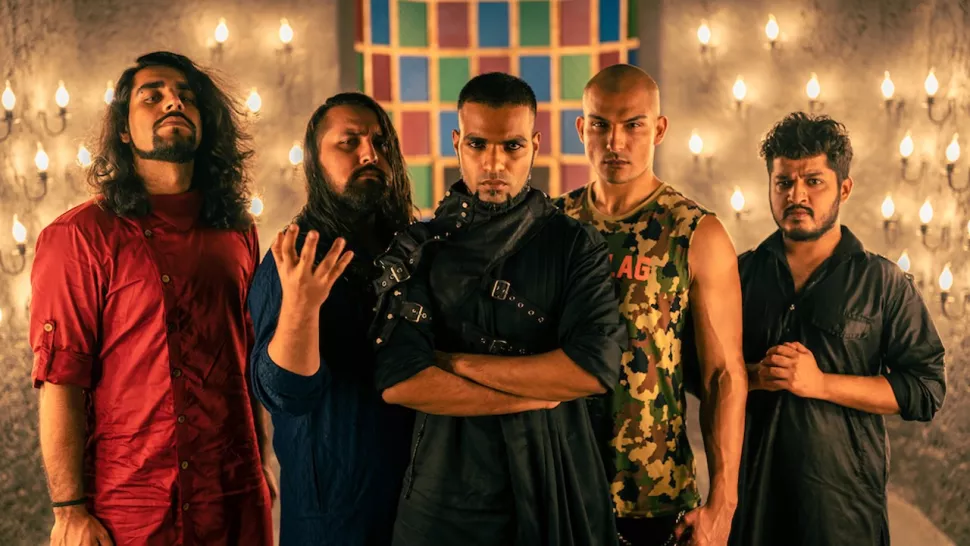
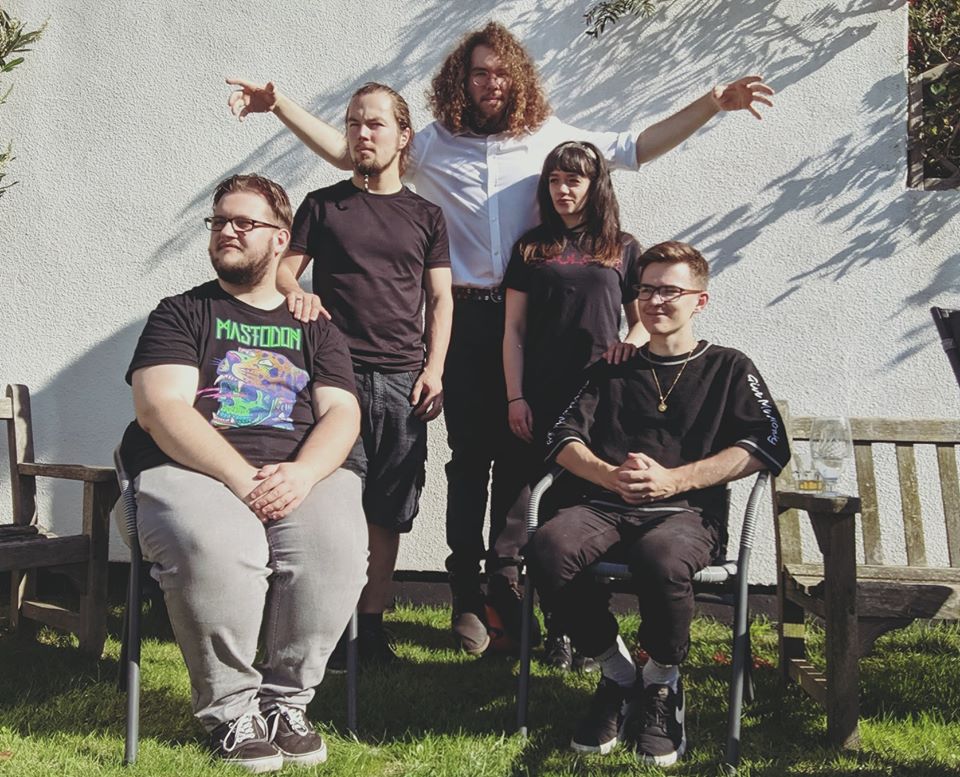
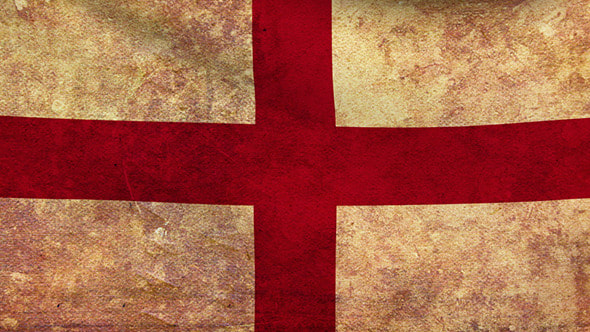
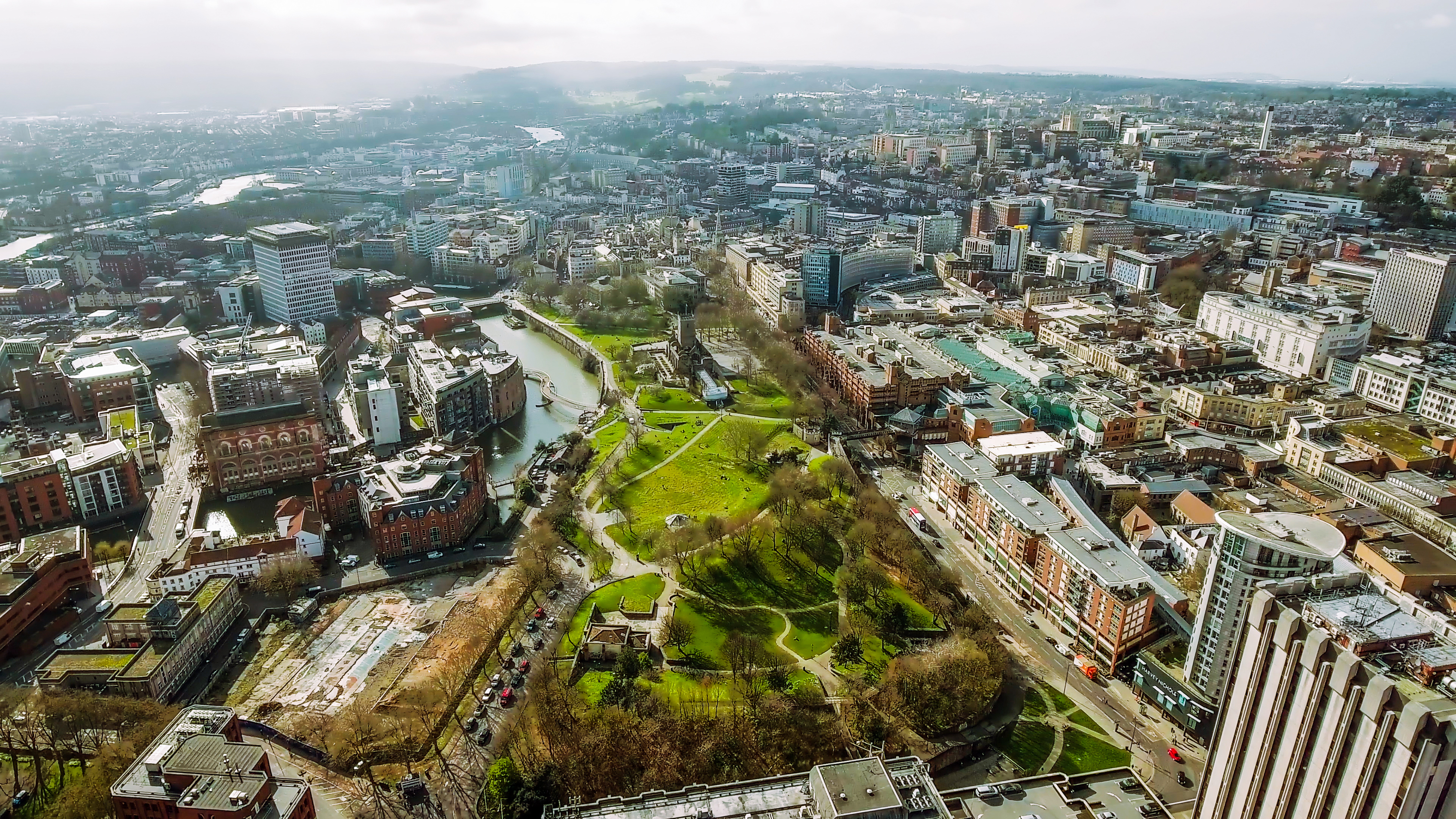
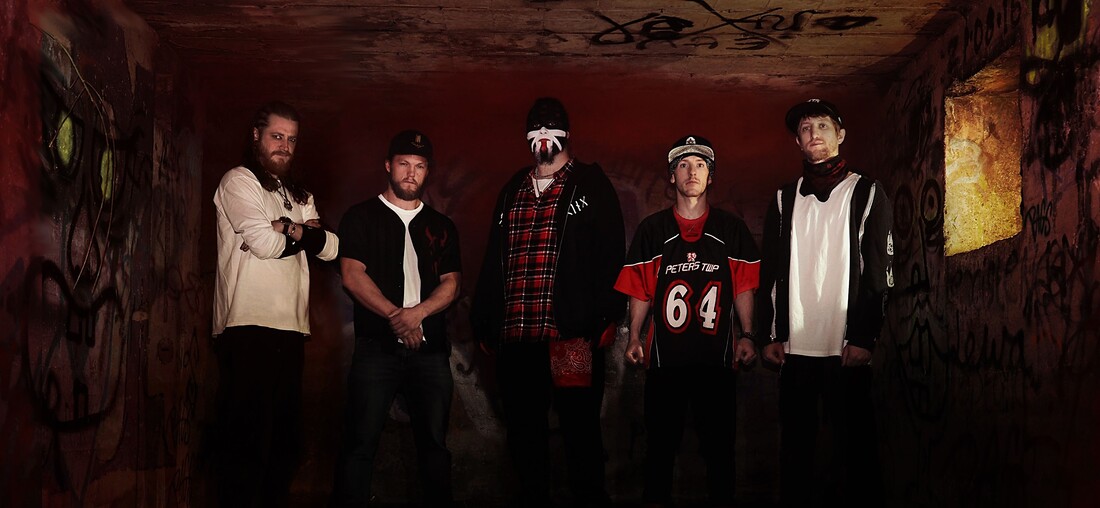
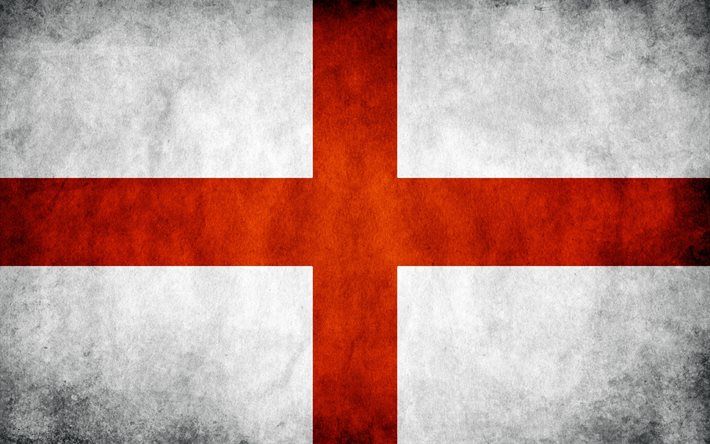
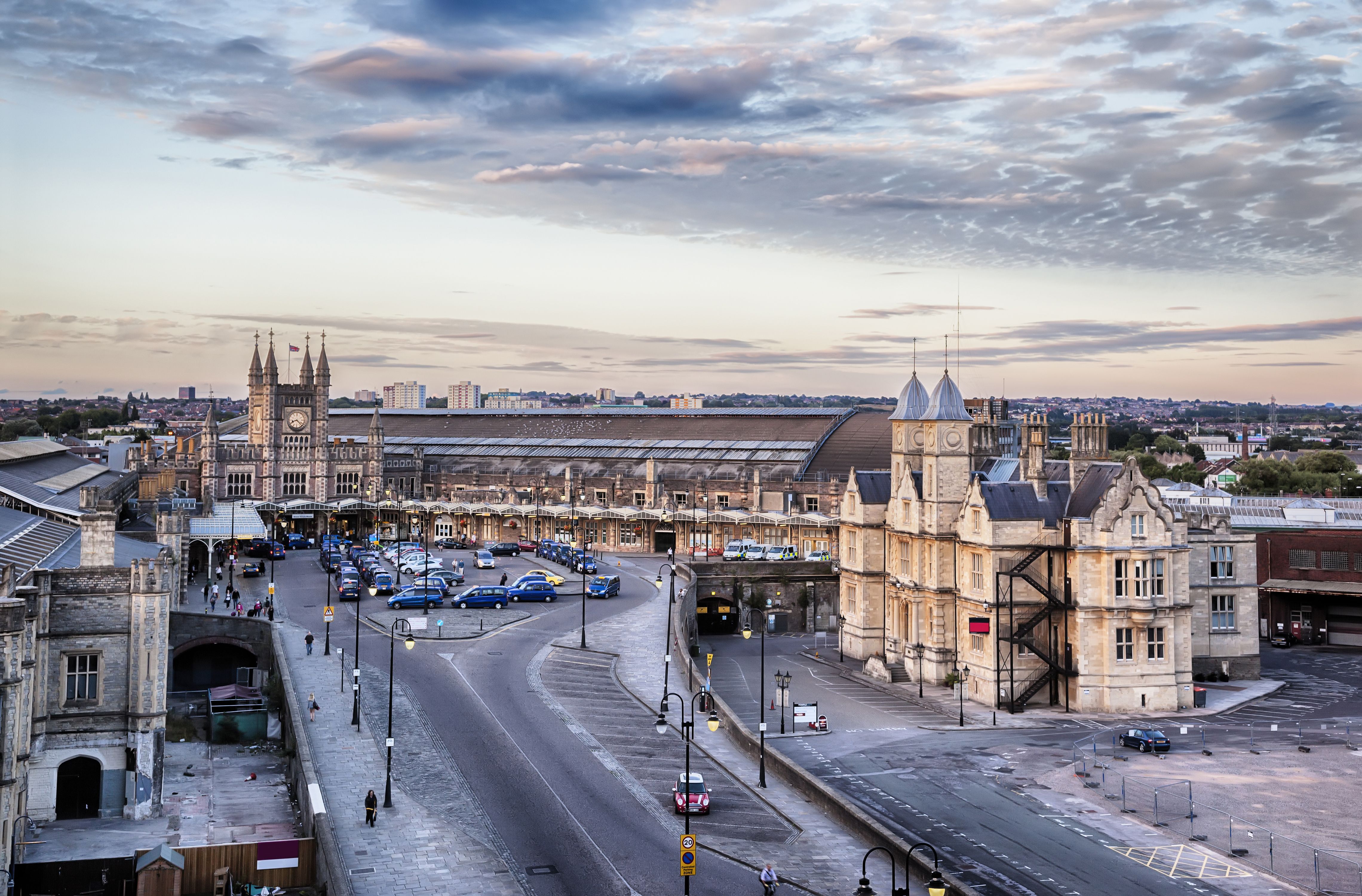
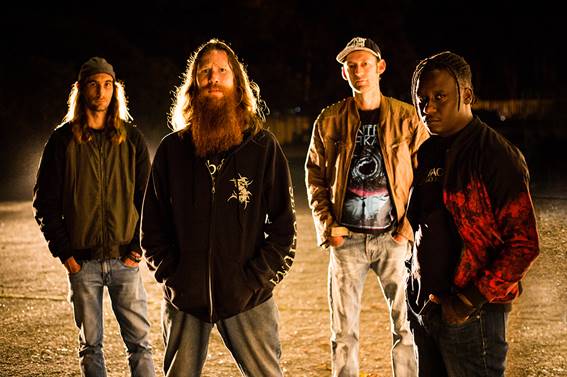
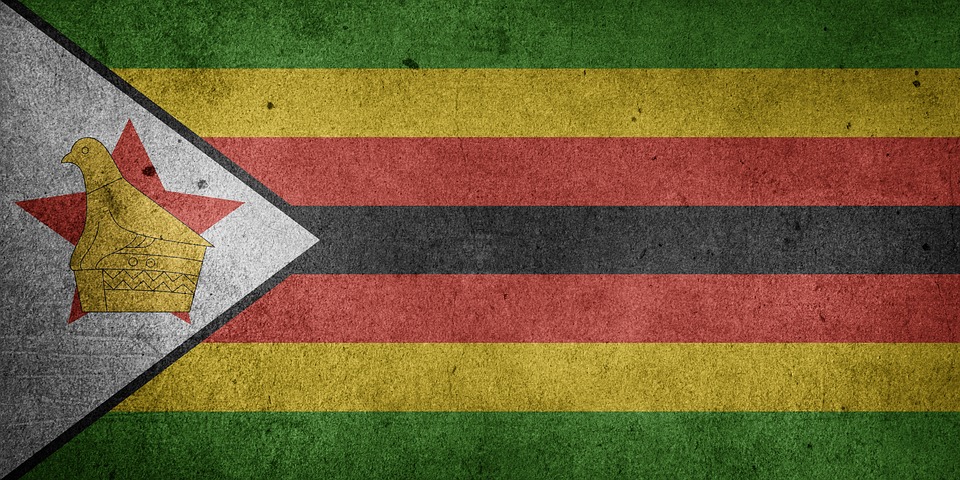
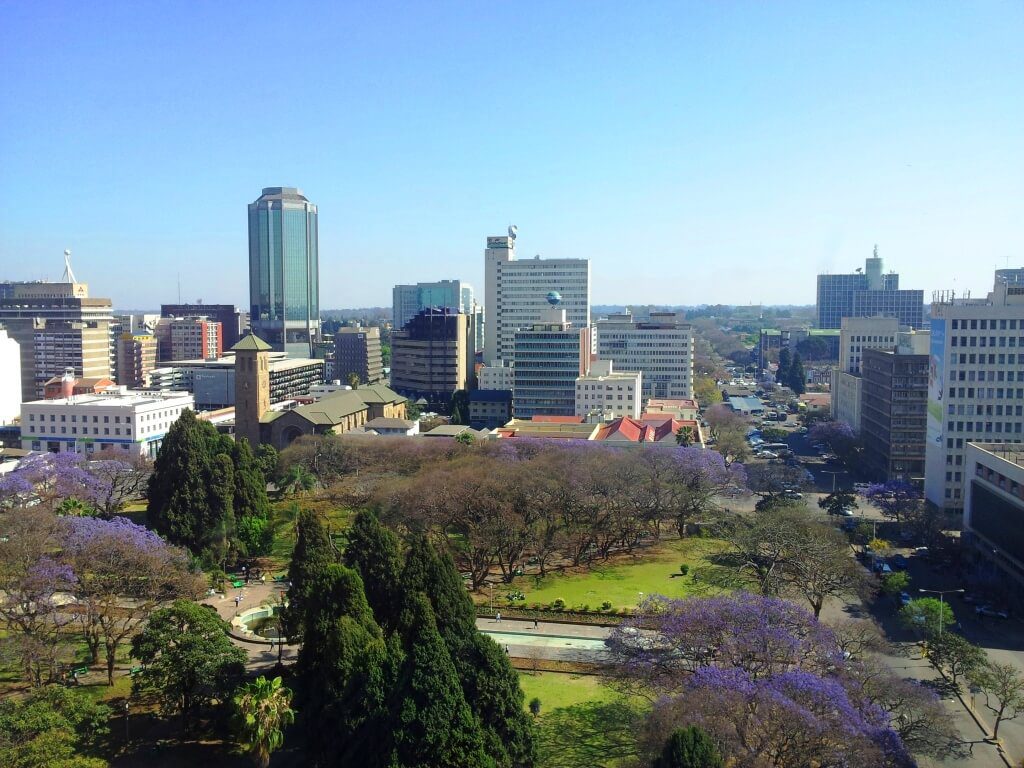
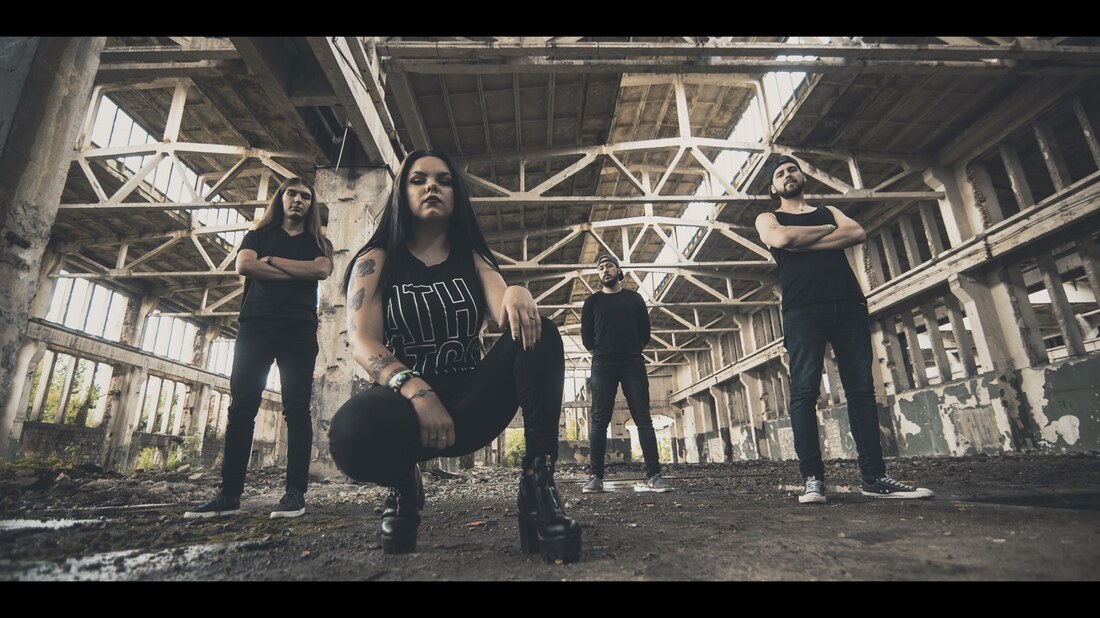

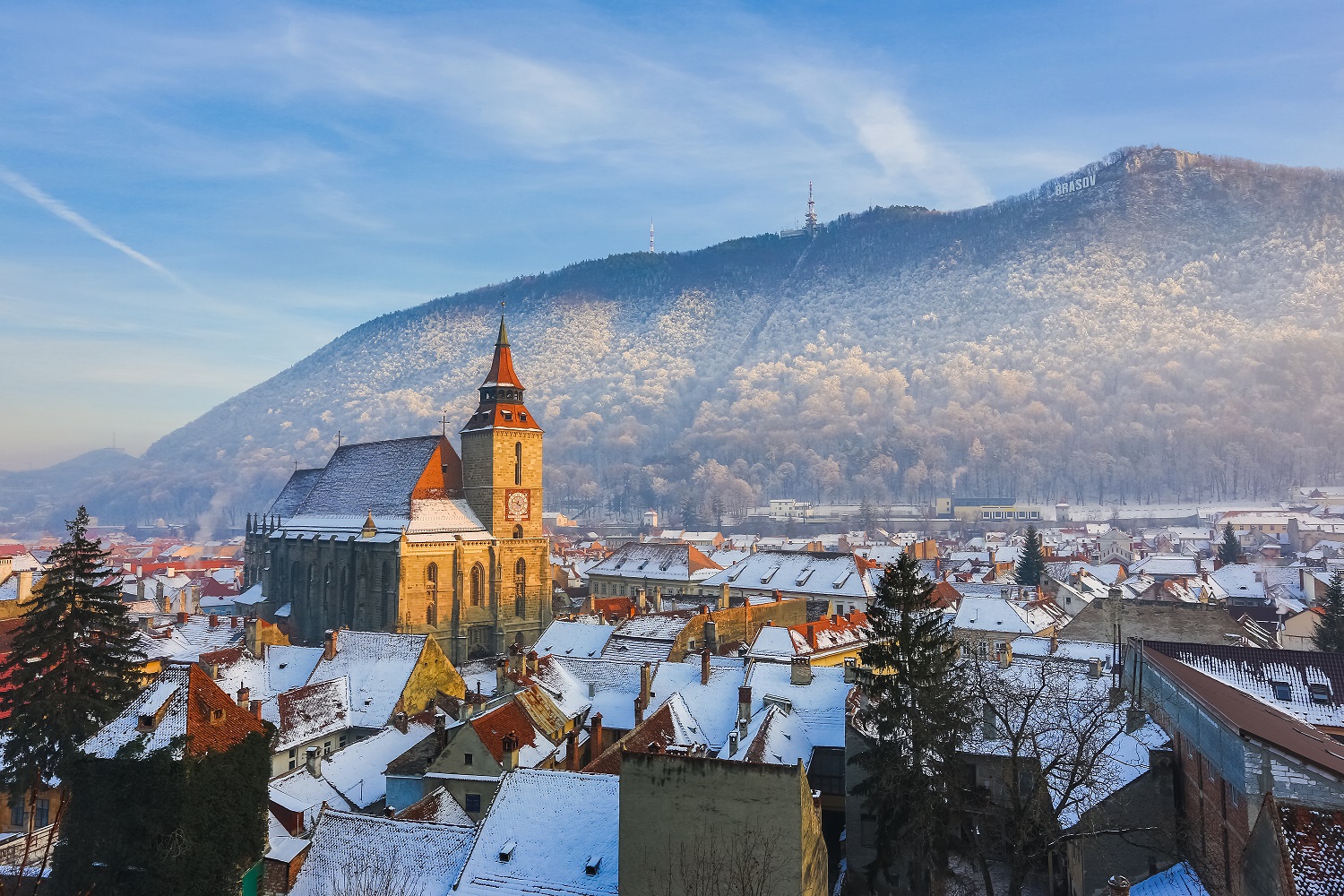
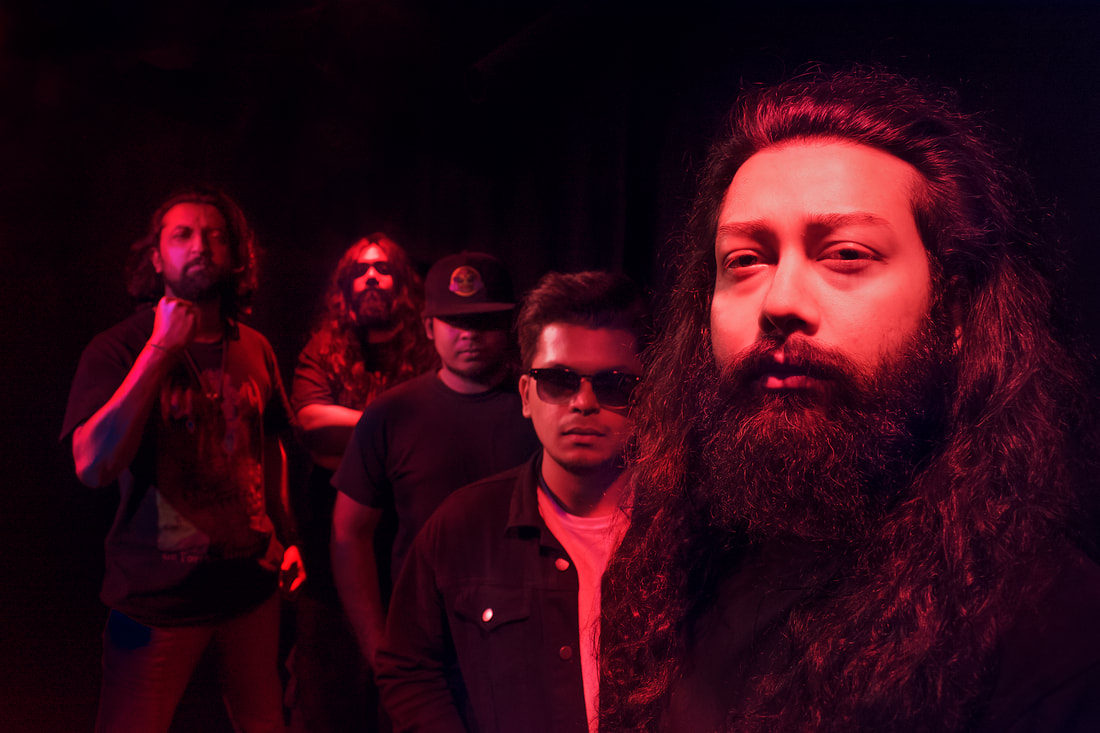
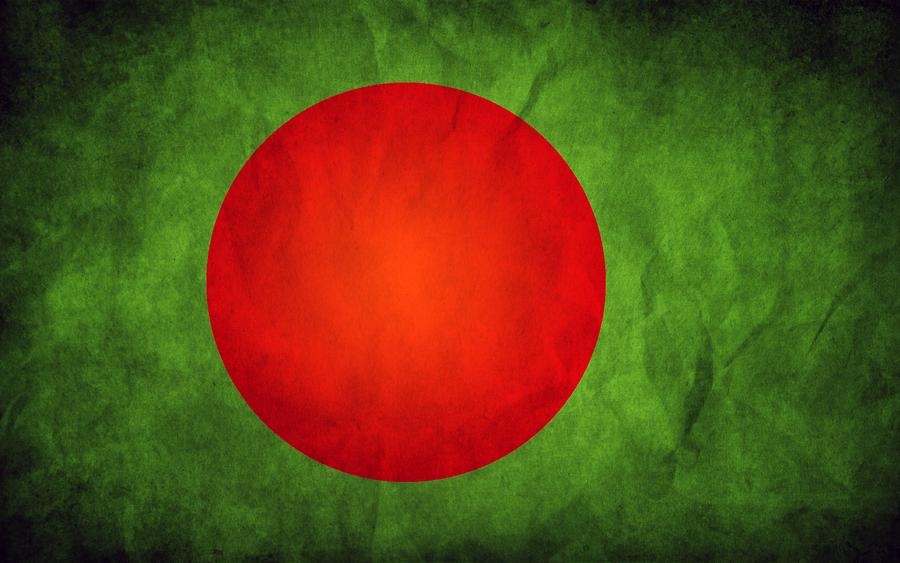
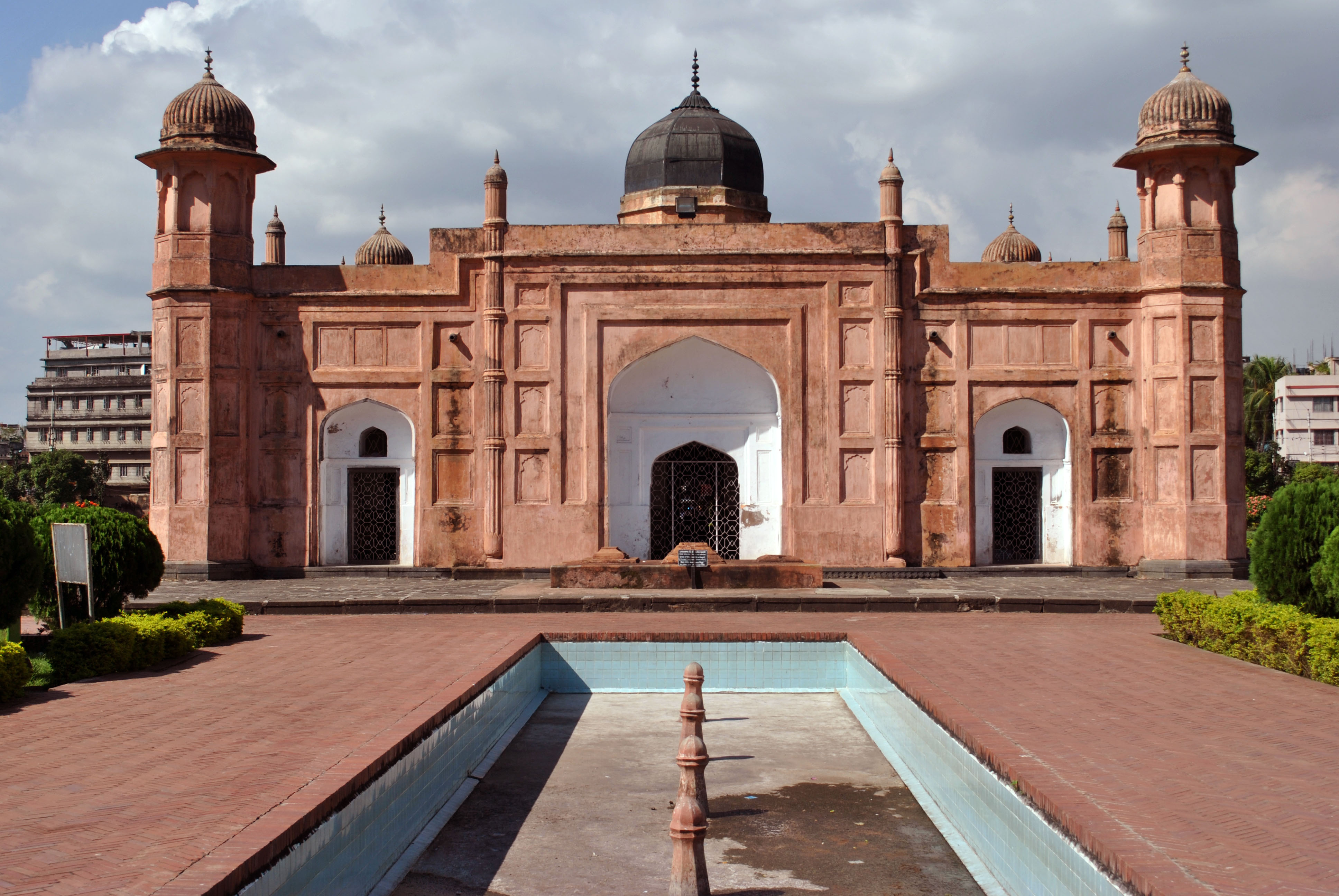
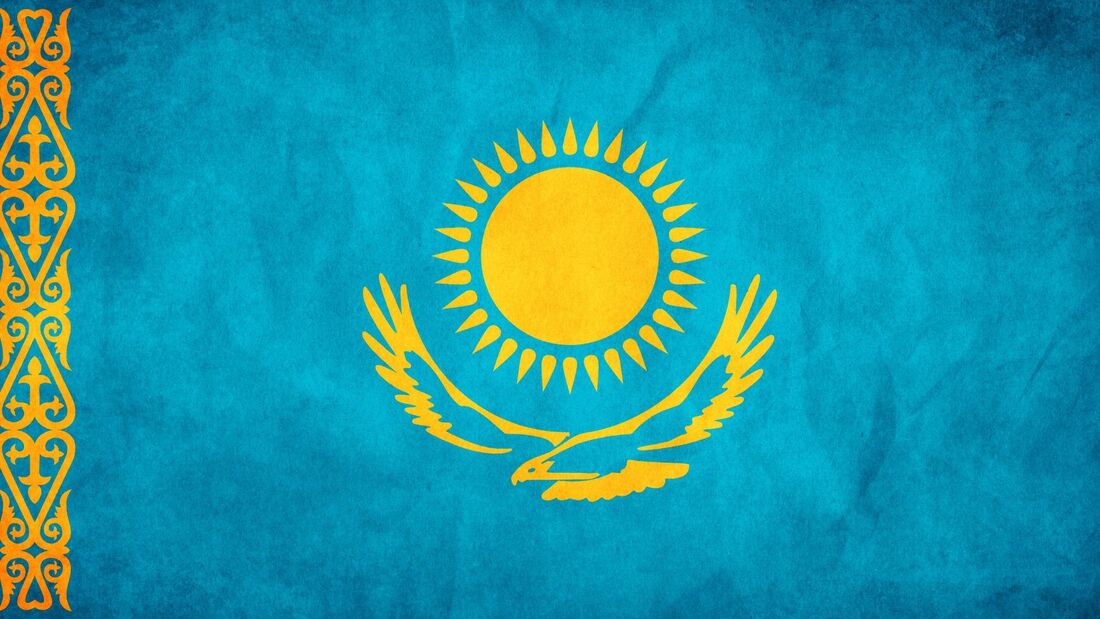
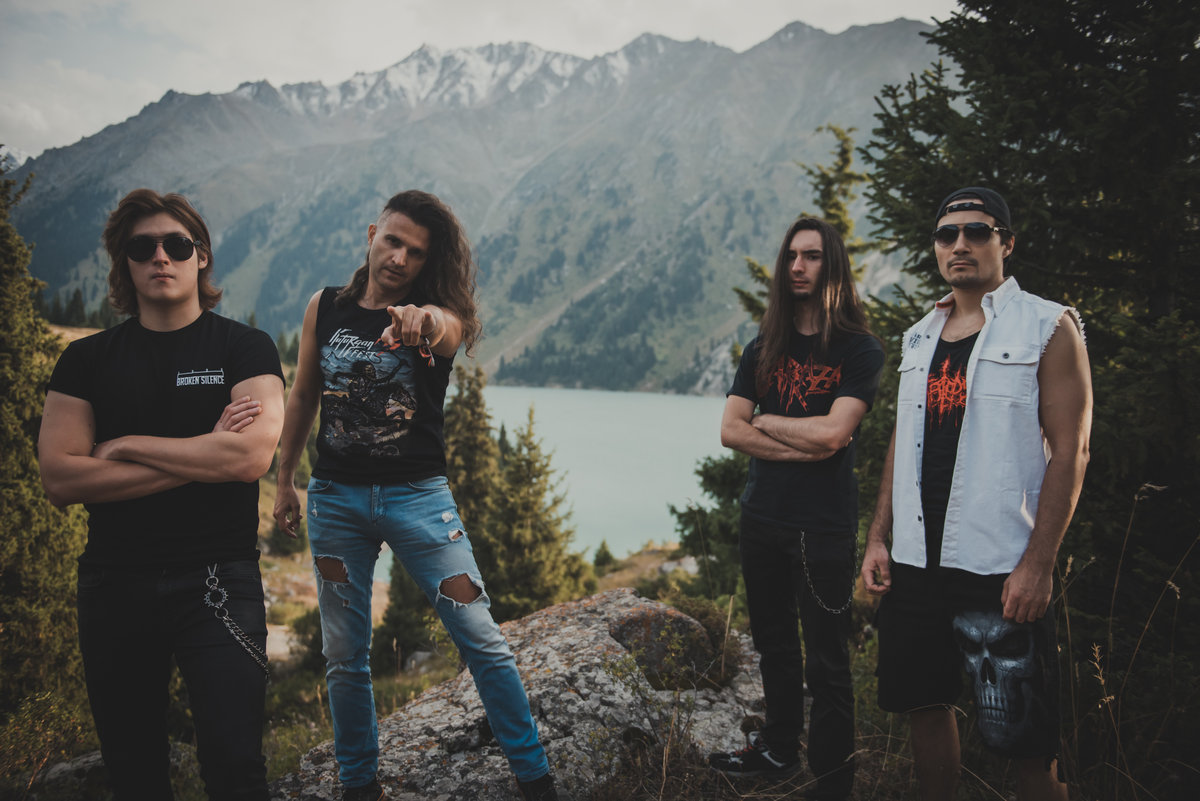
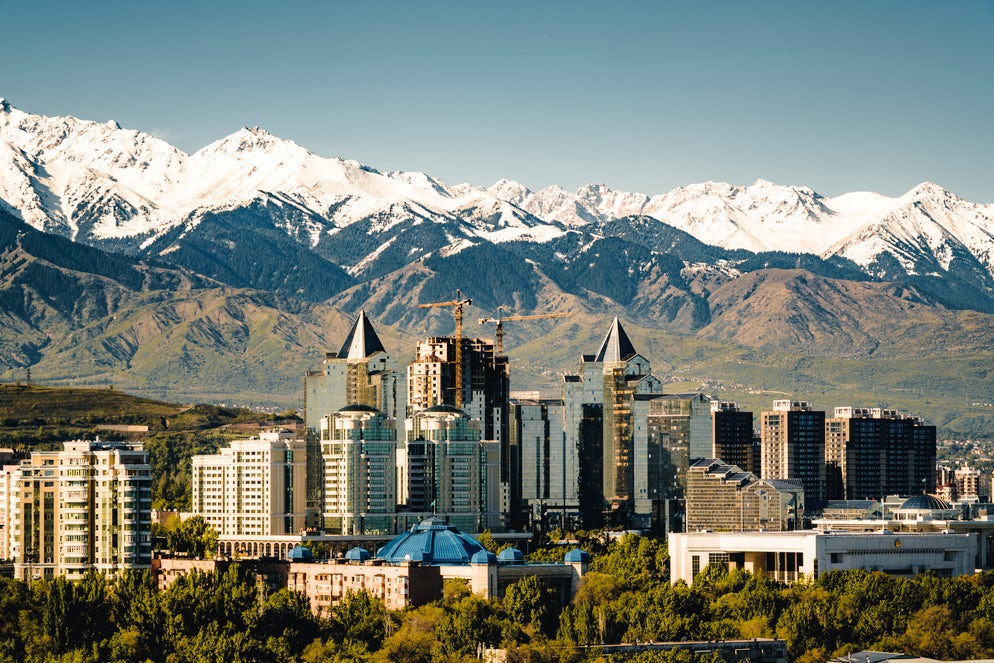
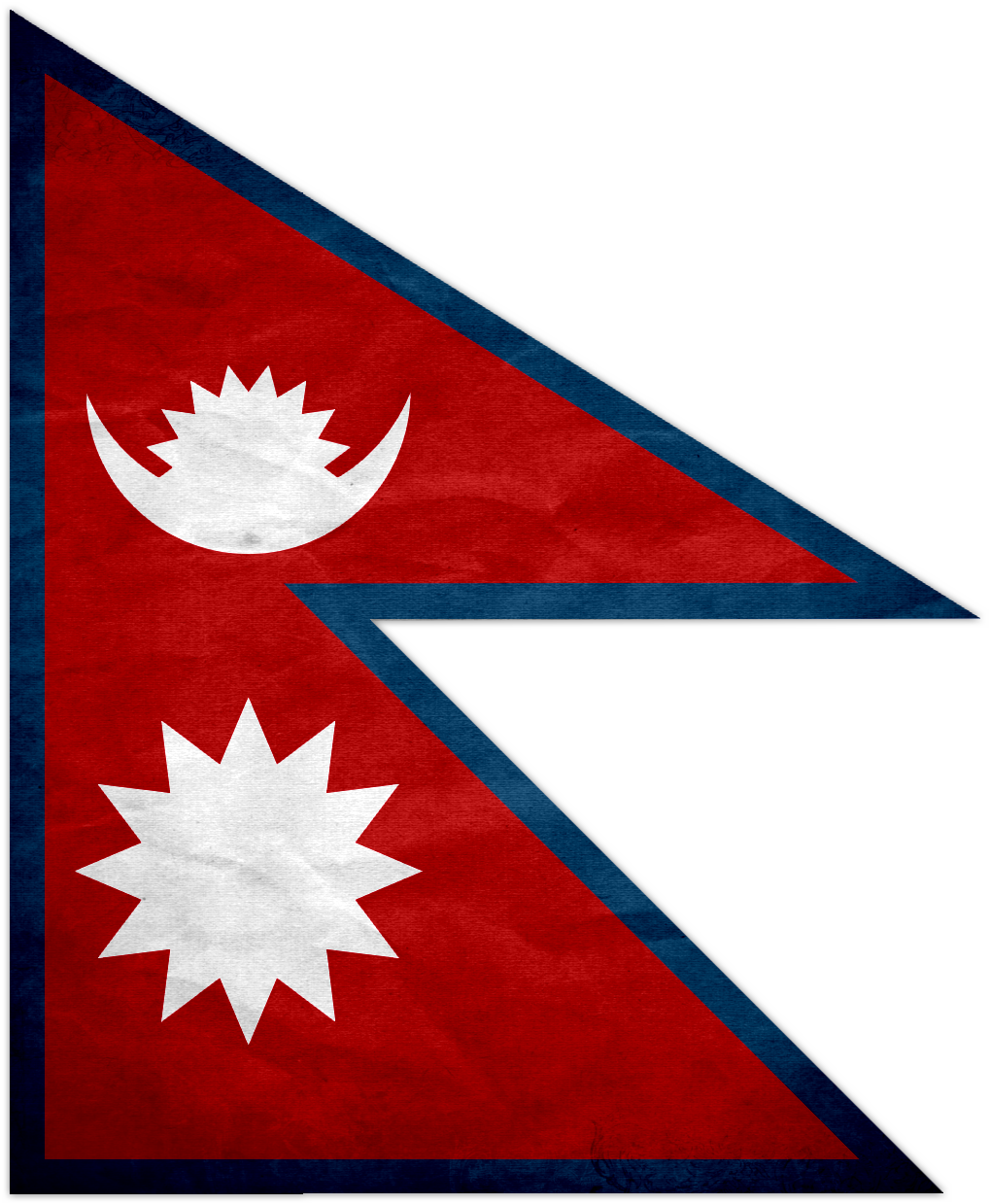
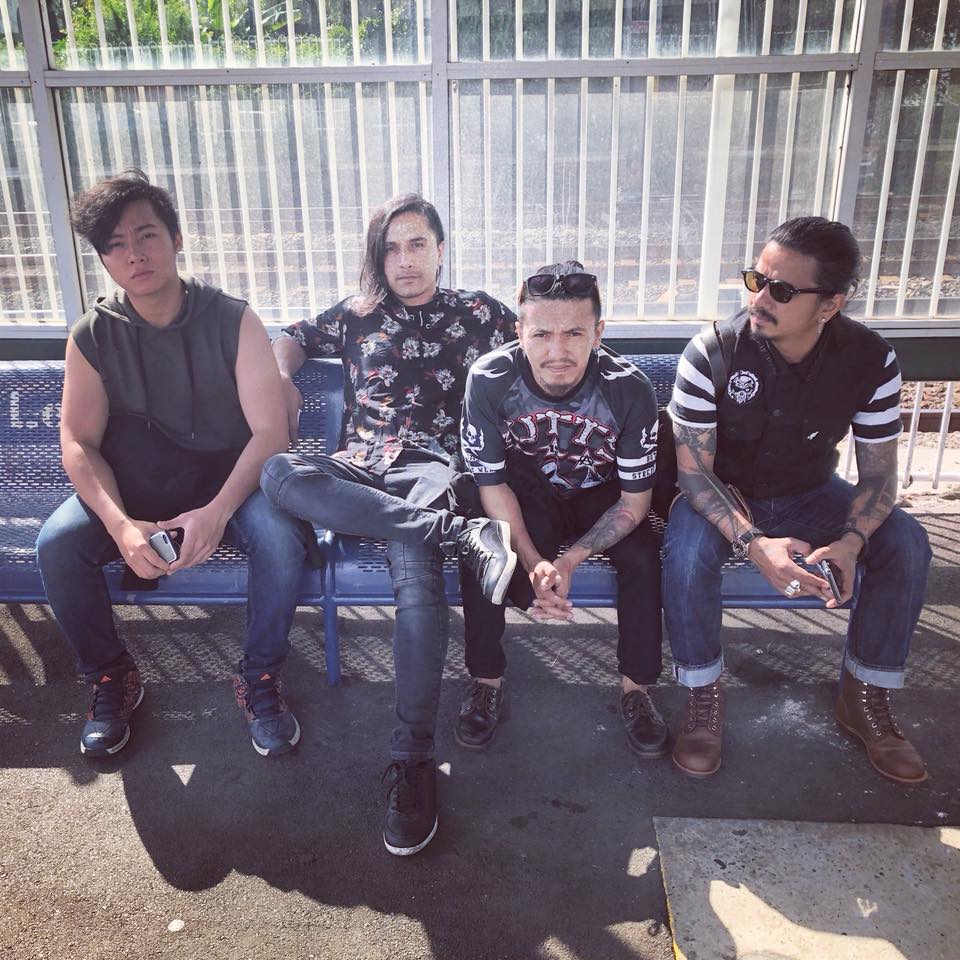
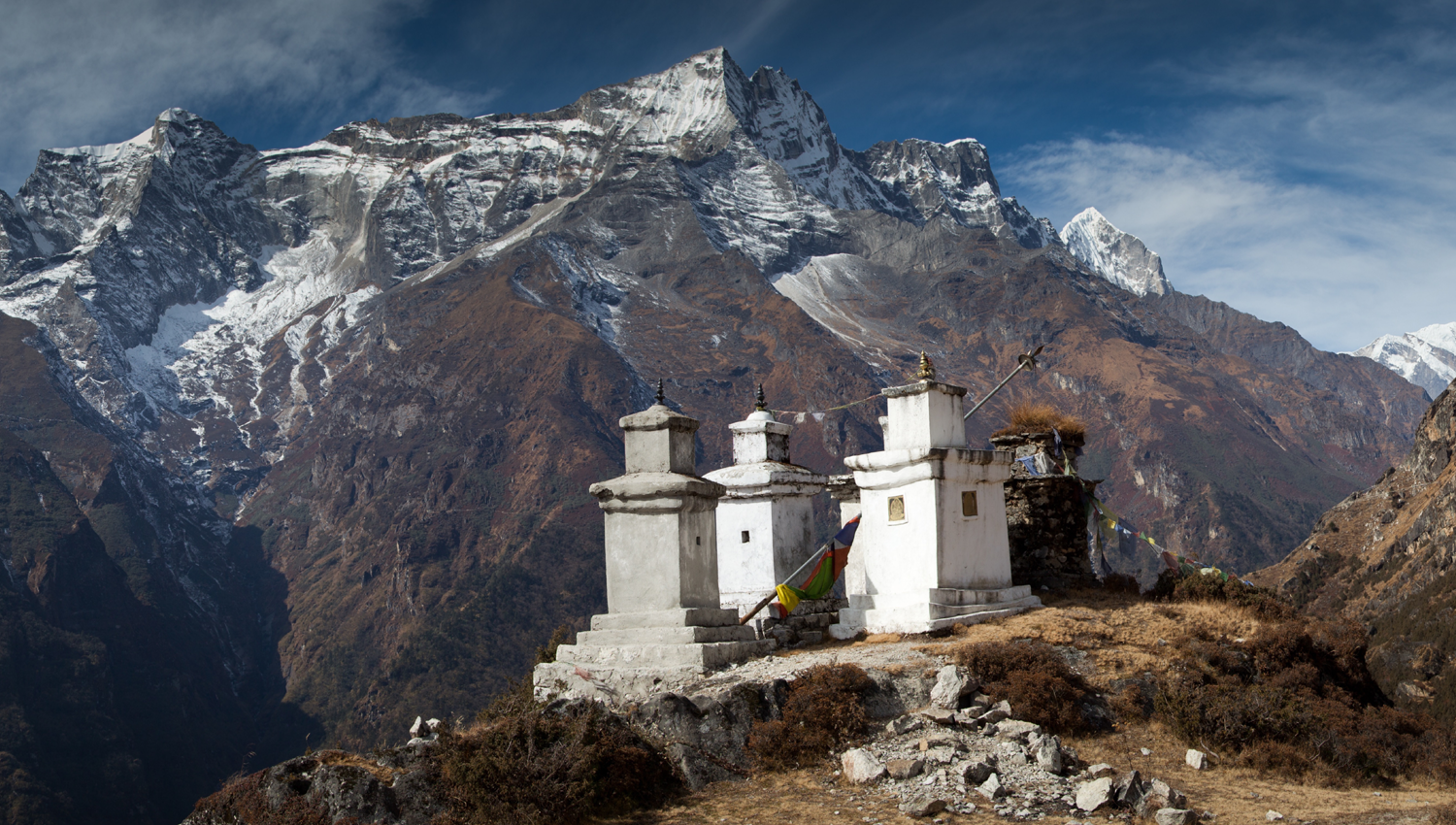
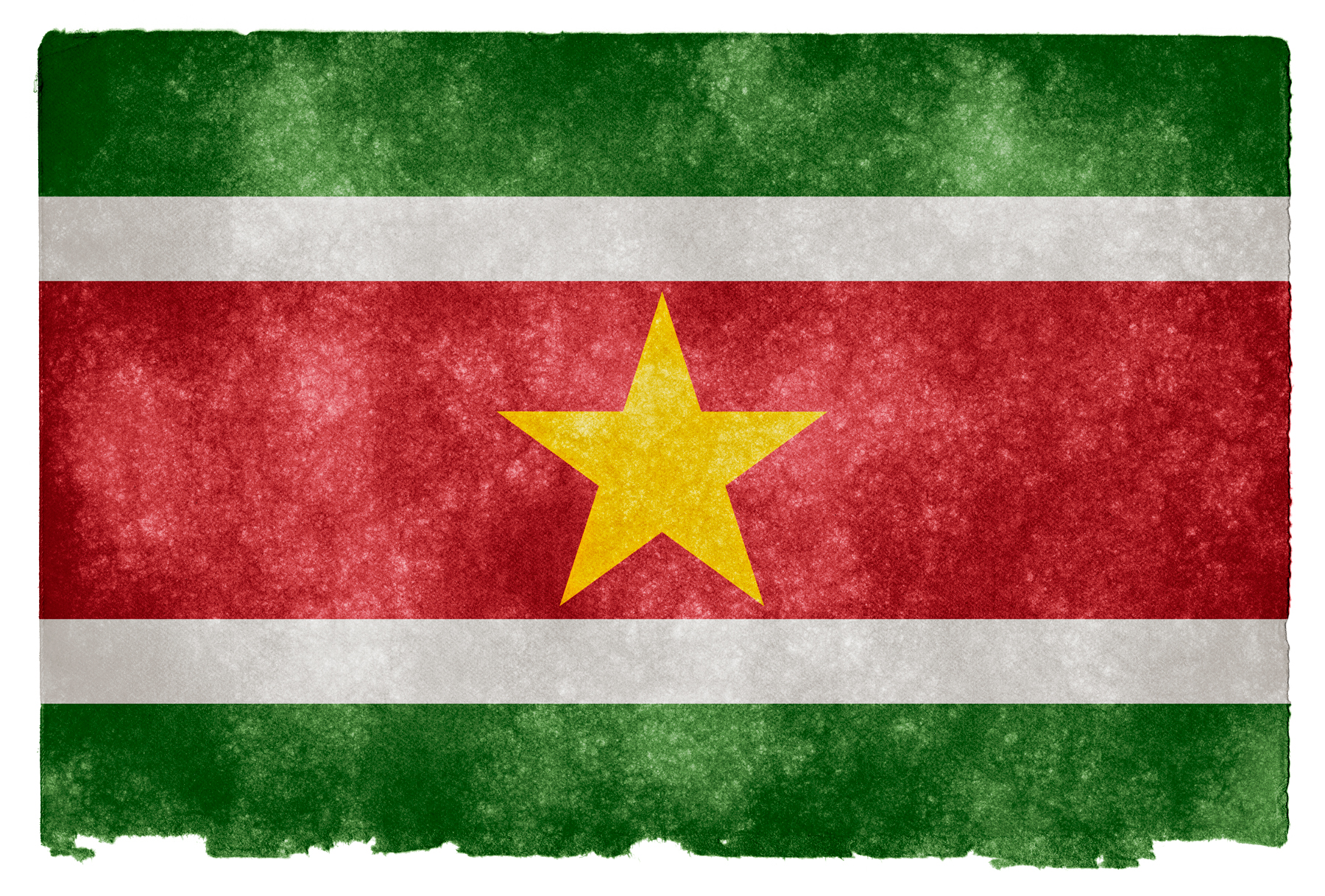
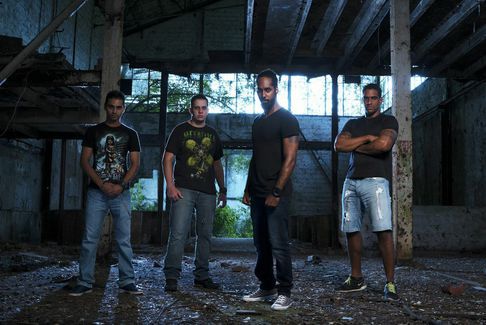
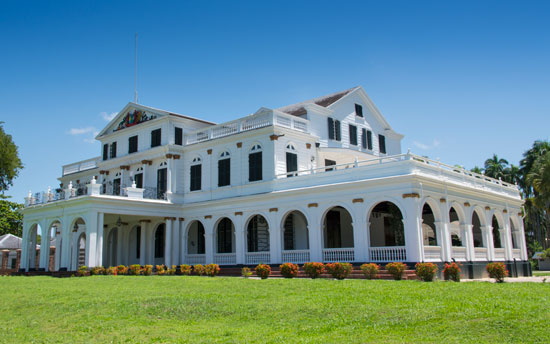
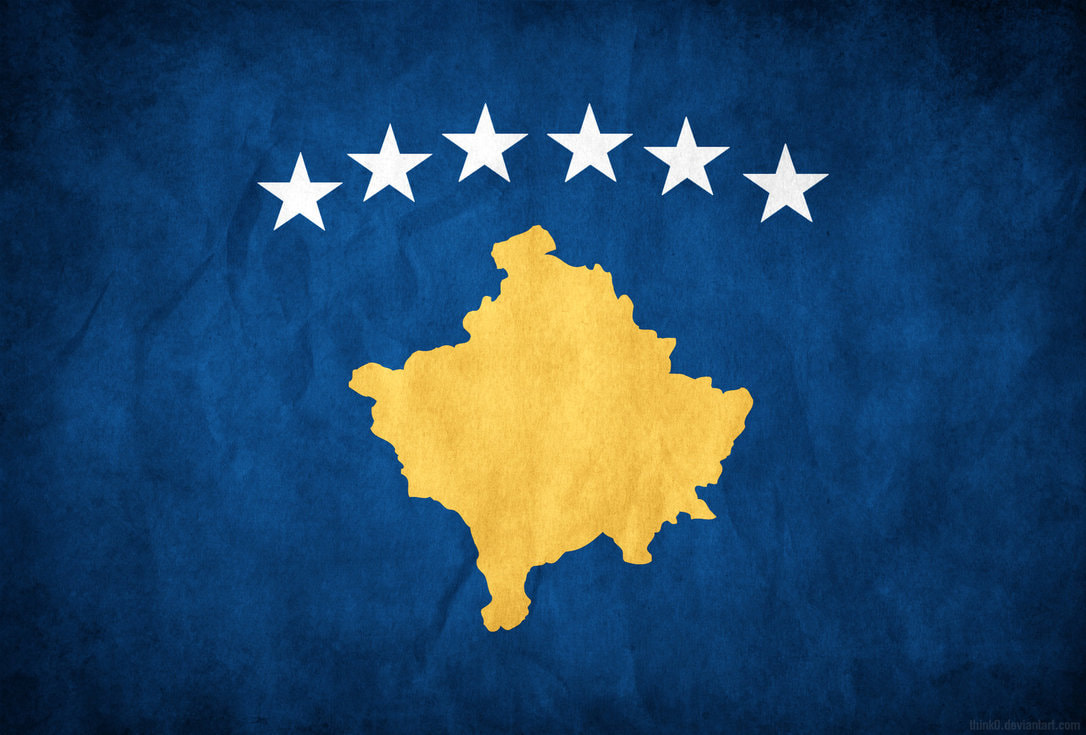
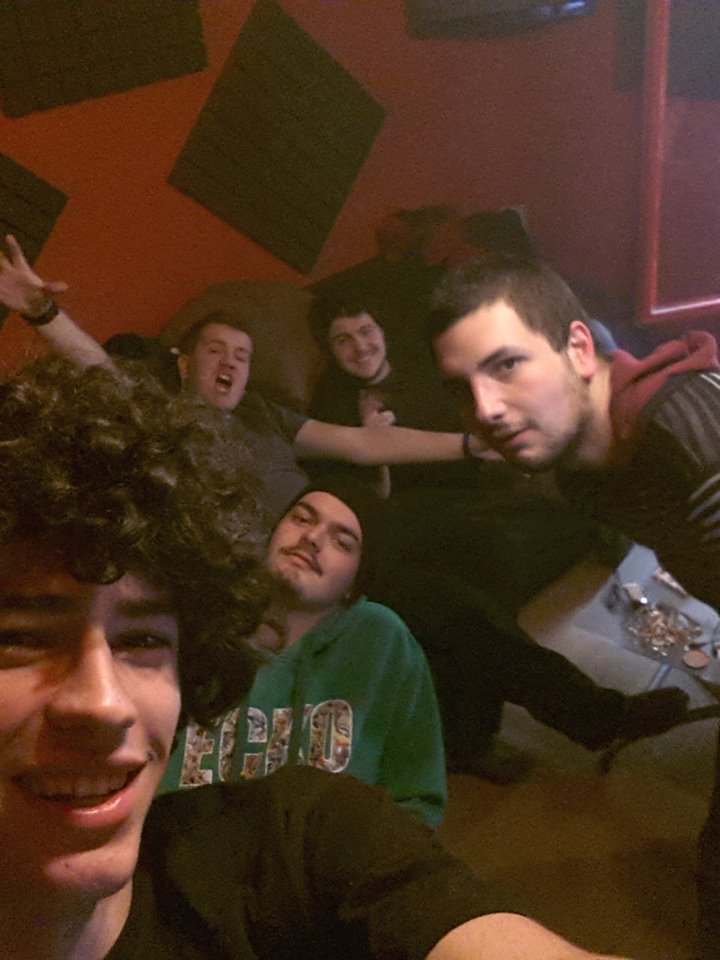
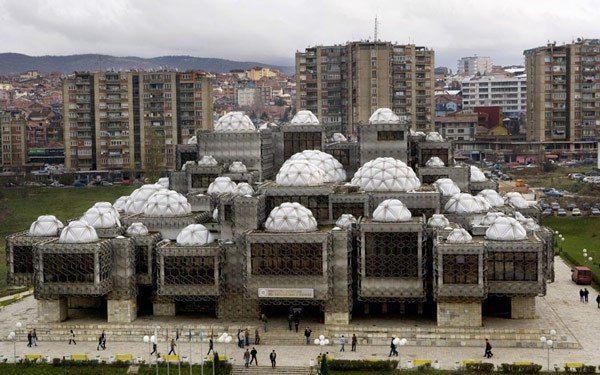
 RSS Feed
RSS Feed